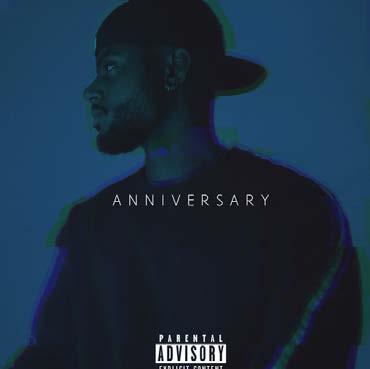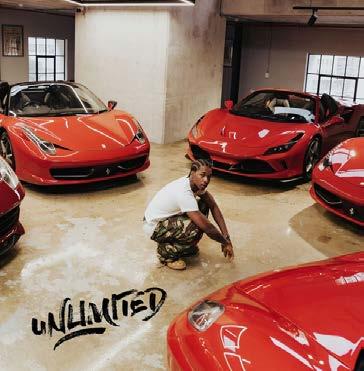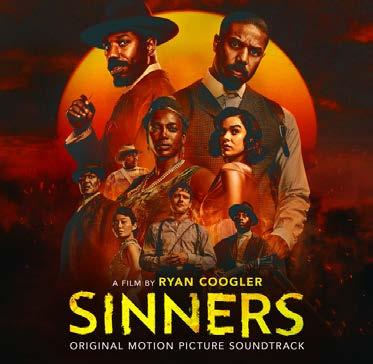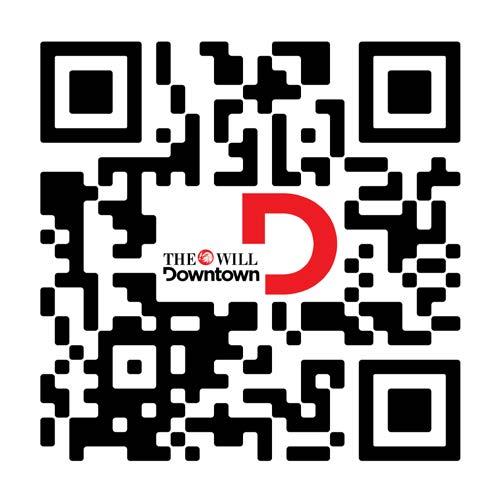
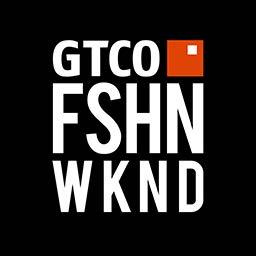
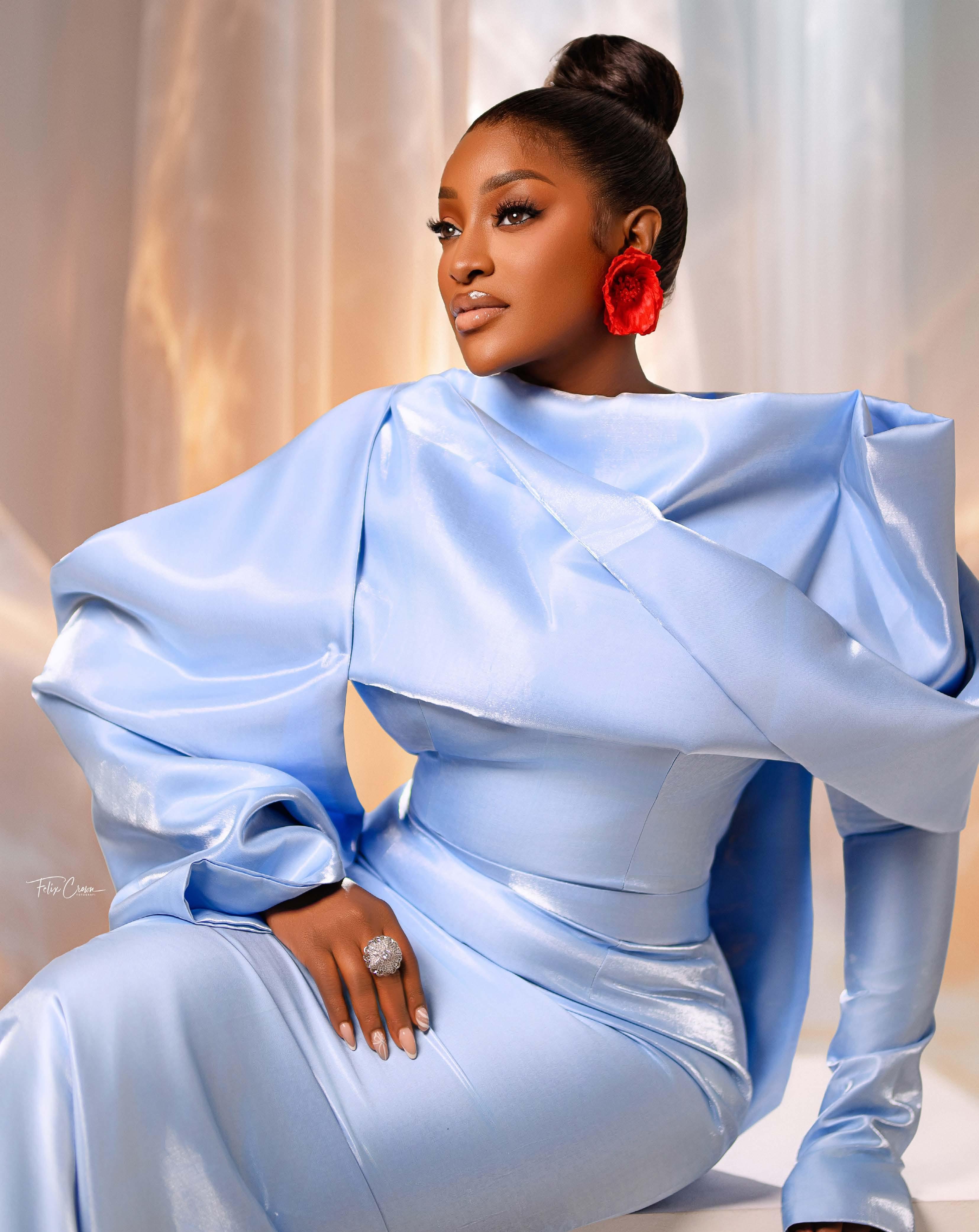




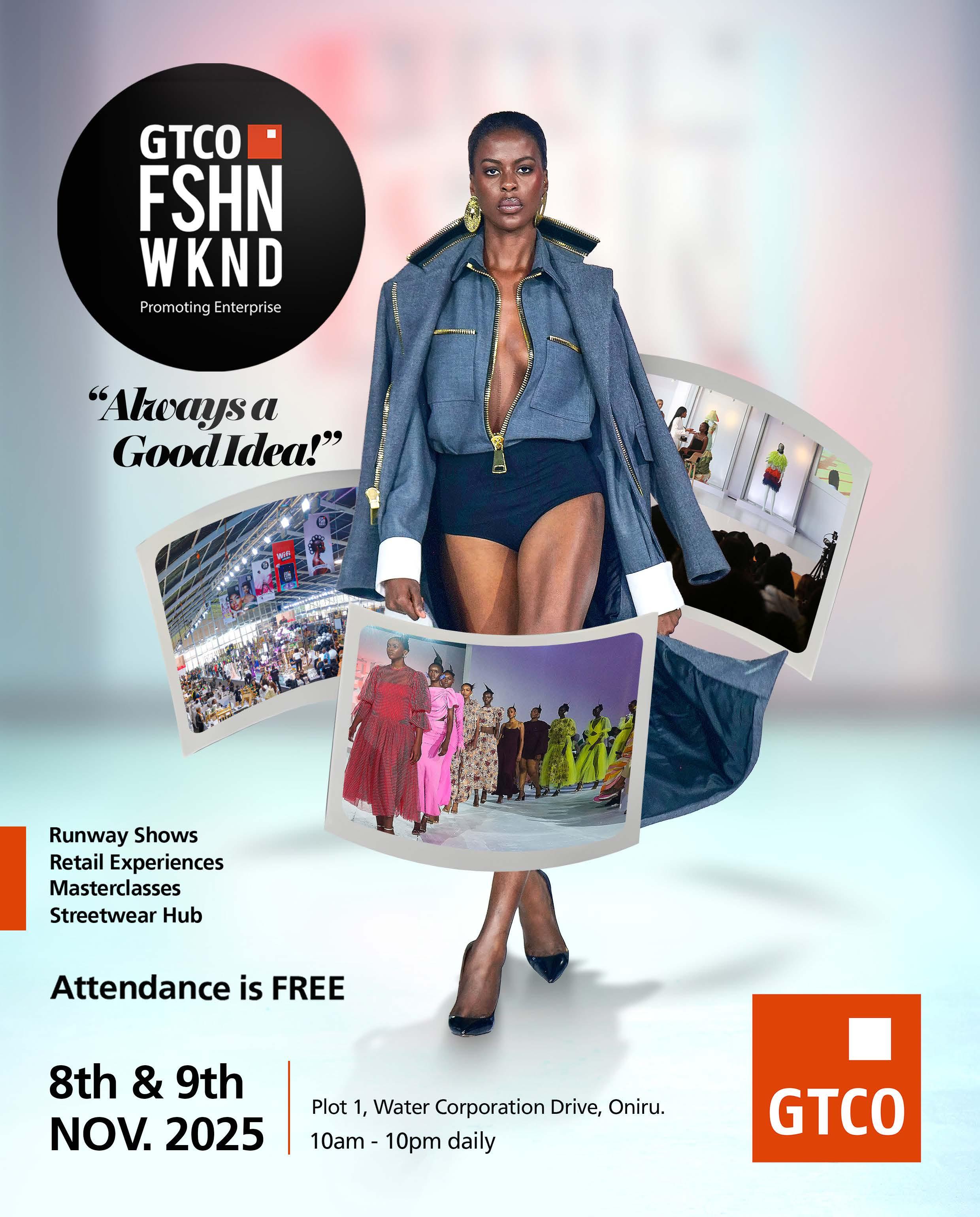









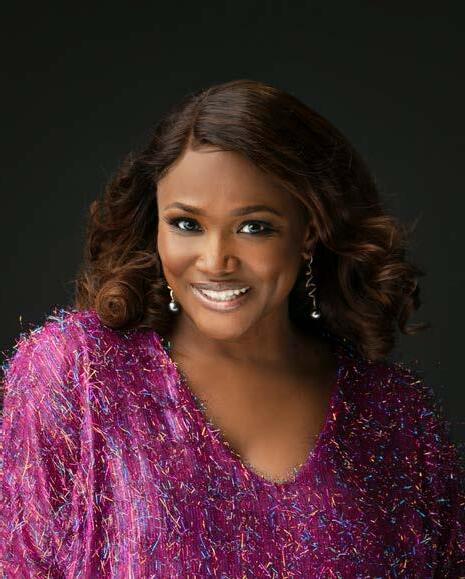
Joycee Awosika wasn’t always an entrepreneur; she transitioned from the energy sector in the United States to the public sector in Nigeria, and then, based on her fascination with natural ingredients and their healing and transformative powers, she started ORÍKÌ. Awosika says an entrepreneur goes through many seasons of stretching and that people often see the awards, the beautiful spaces, and the expansion, but they don’t see the weight behind the wins. As an entrepreneur, she has navigated challenging phases, coming to realise that growth often requires pressure. According to Awosika, she hasn’t met anyone who has built something great without going through a season of stretching. For her, that stretching has produced strength, wisdom, and grace that no textbook could ever teach.
When it comes to balancing family with ambition, Awosika has come to understand that life happens in seasons, and each season carries its own rhythm and priorities.
Read Joycee Awosika’s story on pages 8 to 10 of this issue.
Nothing beats a neutral capsule wardrobe when it comes to dressing stylishly and stress-free. Not only does it reduce clutter and save time, but it also makes daily dressing a lot easier, plus you’ll own pieces you actually wear. Our fashion pages guide you through the steps to take to help you build a neutral capsule wardrobe. You’ll find this on pages 4 and 5.
We have a feature interview this week in which we interview Akunnaya Ukeje, the Chief Marketing Officer (CMO)at Nathan’s Finance Limited. Read her story on pages 11 and 12.
Scroll on to our movie review page to download the playlist and read the movie reviews. I promise you will love them.


@onahluciaa + 2348033239132


6 Ways to Build a Neutral Capsule Wardrobe 04-05 FASHION #UNSHAKABLE TRUTHS
07
8-10
Untold Truths The Midlife Awakening
How Akunnaya Ukeje is Shaping Modern Finance 11-12
14 FEATURE
LUXURY SILK
15 16 REVIEW DOWNTOWN CONFIDENTIAL COVER Joycee Awosika A Decade of Defining Wellness
Peace Has a Schedule Now
Second Chances
TRON: Ares

Boluwatife Adesina @bolugramm
- Contributing Writer
Boluwatife Adesina is a media writer and the helmer of the Downtown Review page. He’s probably in a cinema near you.
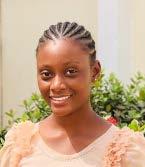
AUSTYN OGANNAH PUBLISHER/EDITOR-IN-CHIEF
Writer: Johnson Chukwueke
Until next week, enjoy your read. www.thewilldowntown.com
Executive Editor: Onah Nwachukwu @onahluciaa
Design & Layout: Olaniyan John ‘Blake’
Digital Media: Oladimeji Balogun
Consulting Art Director: Sunny Hughes ‘SunZA’



Dorcas Akintoye @mila_dfa_
- Contributing Writer
Dorcas Akintoye is a dedicated writer with 5 years prolific experience in writing articles ranging from food, entertainment, fashion and beauty. She loves writing, listening to music and playing scrabble. She is a highly-skilled, enthusiastic, selfmotivated professional writer.
Sally Chiwuzie @unshakable.is.a.state.of.mind
- Contributing Writer
Sally Chiwuzie is a non-practising barrister who owns the brand #Unshakable. She is the author of Silent Symphonies, a fictional love story, and the creator of the podcast Chronicles of #Unshakable Truths.
Ada Obiajunwa @aaddaahh
- Contributing Writer



Photo: Kola Oshalusi @insignamedia Makeup: Zaron @hairbytogrey @yajnamusic
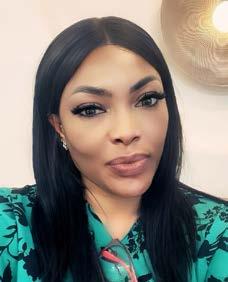
+234 913 333 3888
Ada Obiajunwa writes from Lagos about the big truths tucked inside ordinary moments — friendship, self-discovery, and the quiet revolutions of everyday life. She believes in the power of presence, good banter, and decoding the unsaid. Through her fragrance studio, WhiffWonders, she also crafts scents that weave memory and emotion into experiences that feel like home.














@realprinceosele









BY DORCAS AKINTOYE
When it comes to dressing stylishly stress-free, nothing beats a neutral capsule wardrobe.
A capsule wardrobe is a small collection of essential clothing pieces that can be mixed and matched easily. When you choose neutral colours like black, white, beige, grey, and navy, you create outfits that always look polished and versatile. Building a neutral capsule wardrobe saves time, reduces clutter, and makes daily dressing a lot easier. Instead of a wardrobe full of clothes you barely wear, you’ll own pieces you love and actually use. In this article, we will guide you through six easy steps to help you build a neutral capsule wardrobe.
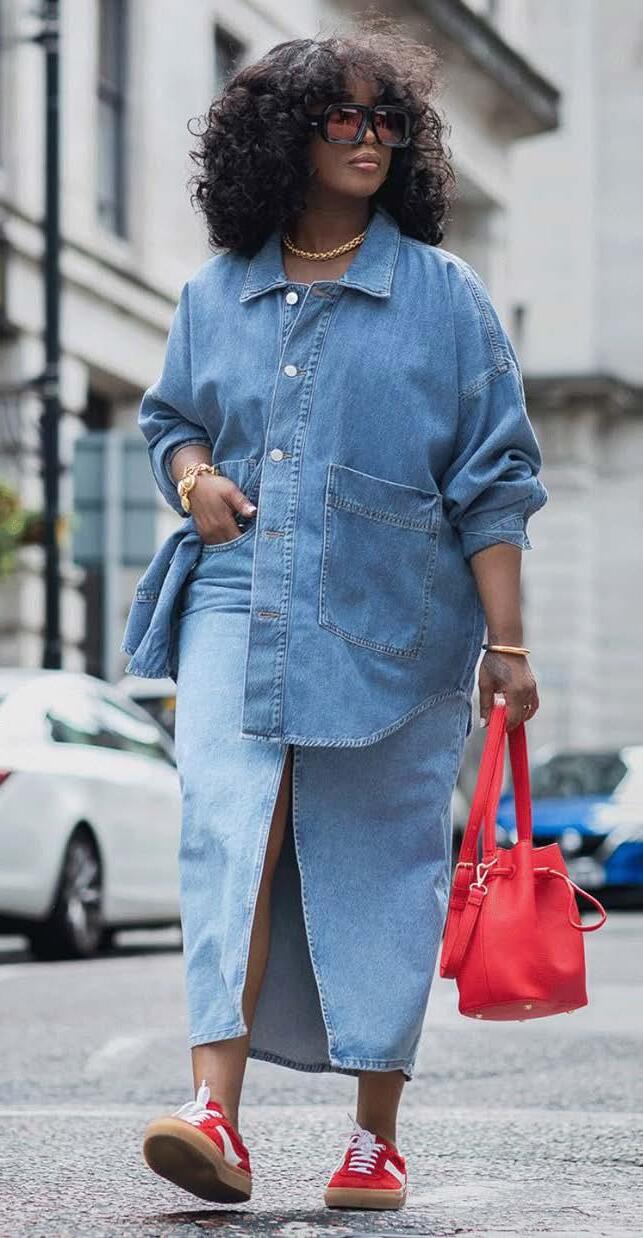
START WITH THE BASICS
The first step is to focus on essential pieces that form the backbone of your wardrobe. Think of items like a crisp white shirt, black trousers, a beige sweater, a denim jacket, or a simple black dress. These basics never go out of style and can be dressed up or down depending on the occasion. Having these simple pieces means you always have something to wear, and because they’re neutral, they can be paired with almost anything.
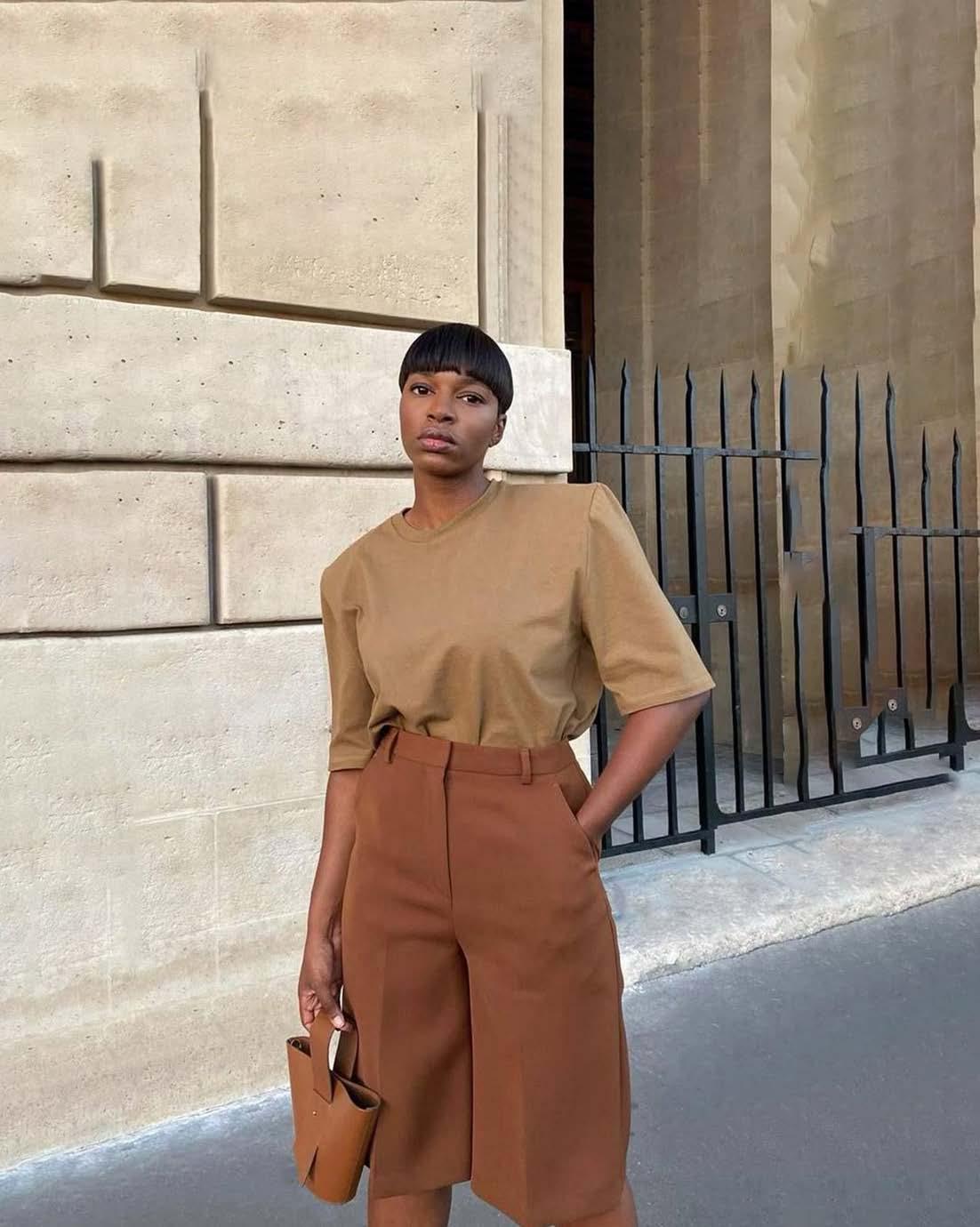

STICK TO NEUTRAL COLOURS
Neutral colours are the secret to a capsule wardrobe that works. Shades like black, white, beige, grey, navy, and brown are timeless and versatile. They blend effortlessly, allowing you to combine them in various ways without clashing.
Since your wardrobe will have fewer pieces, it’s important to invest in clothes that last. A well-made blazer or a pair of durable jeans will serve you better than several cheap items that wear out quickly.
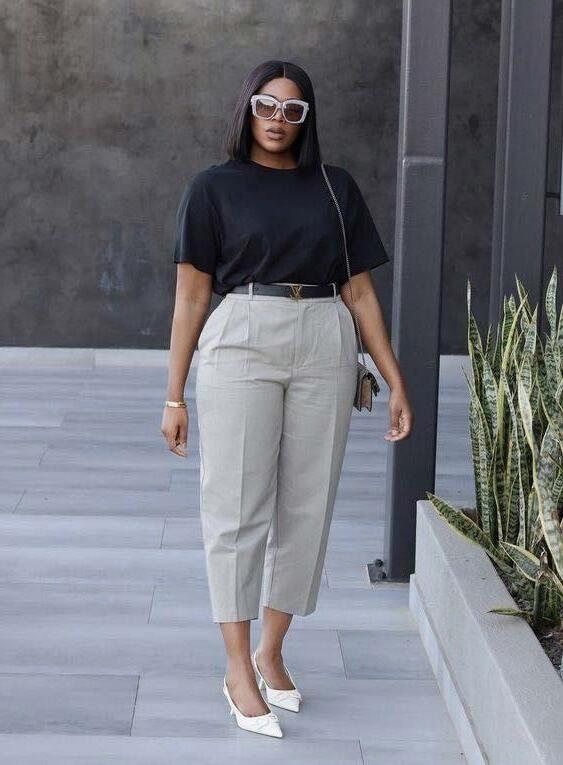
Every item in your neutral capsule wardrobe should work in multiple ways. For example, a white button-up shirt can be worn to the office with trousers, styled casually with jeans, or even layered over a dress. By choosing versatile pieces, you can create more outfit options without needing additional clothes. This makes your wardrobe feel bigger than it really is.
Outerwear can transform a simple outfit into something stylish. Pieces like a tailored blazer or a denim jacket are neutral wardrobe staples. They can be worn with almost anything and instantly make you look put together.

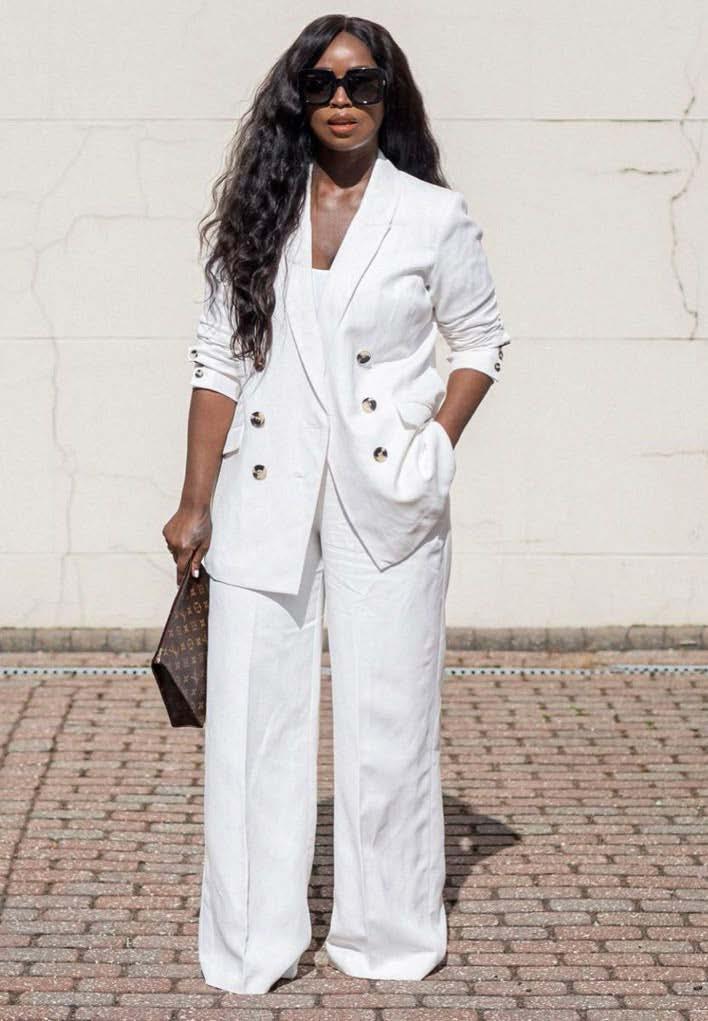
Finally, don’t forget accessories. With a neutral capsule wardrobe, accessories help you add personality without overpowering your look. Items like a black leather belt, a neutral handbag, or simple gold jewellery go a long way. Keep your accessories minimal so they match everything you wear. That way, you won’t have to overthink it; your outfit will always look balanced and chic.
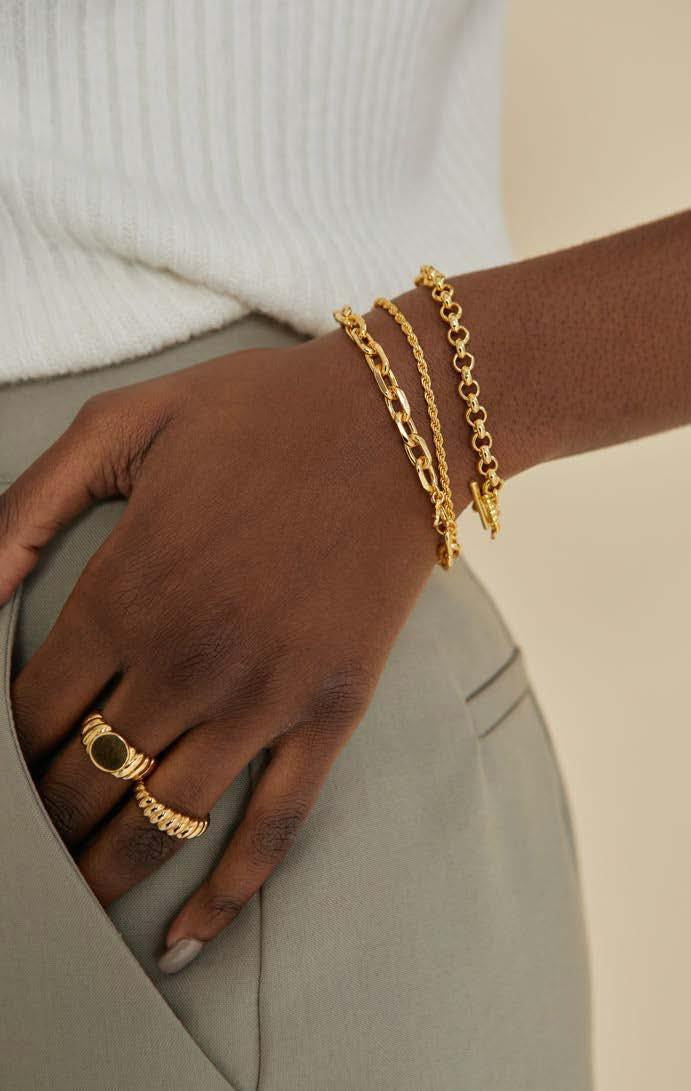
A neutral capsule wardrobe is not about owning fewer clothes; it’s about owning the right clothes. By focusing on basics, sticking to neutral colours, investing in quality, choosing versatile pieces, adding timeless outerwear, and accessorising simply, you’ll have a wardrobe that is easy to manage and always stylish.
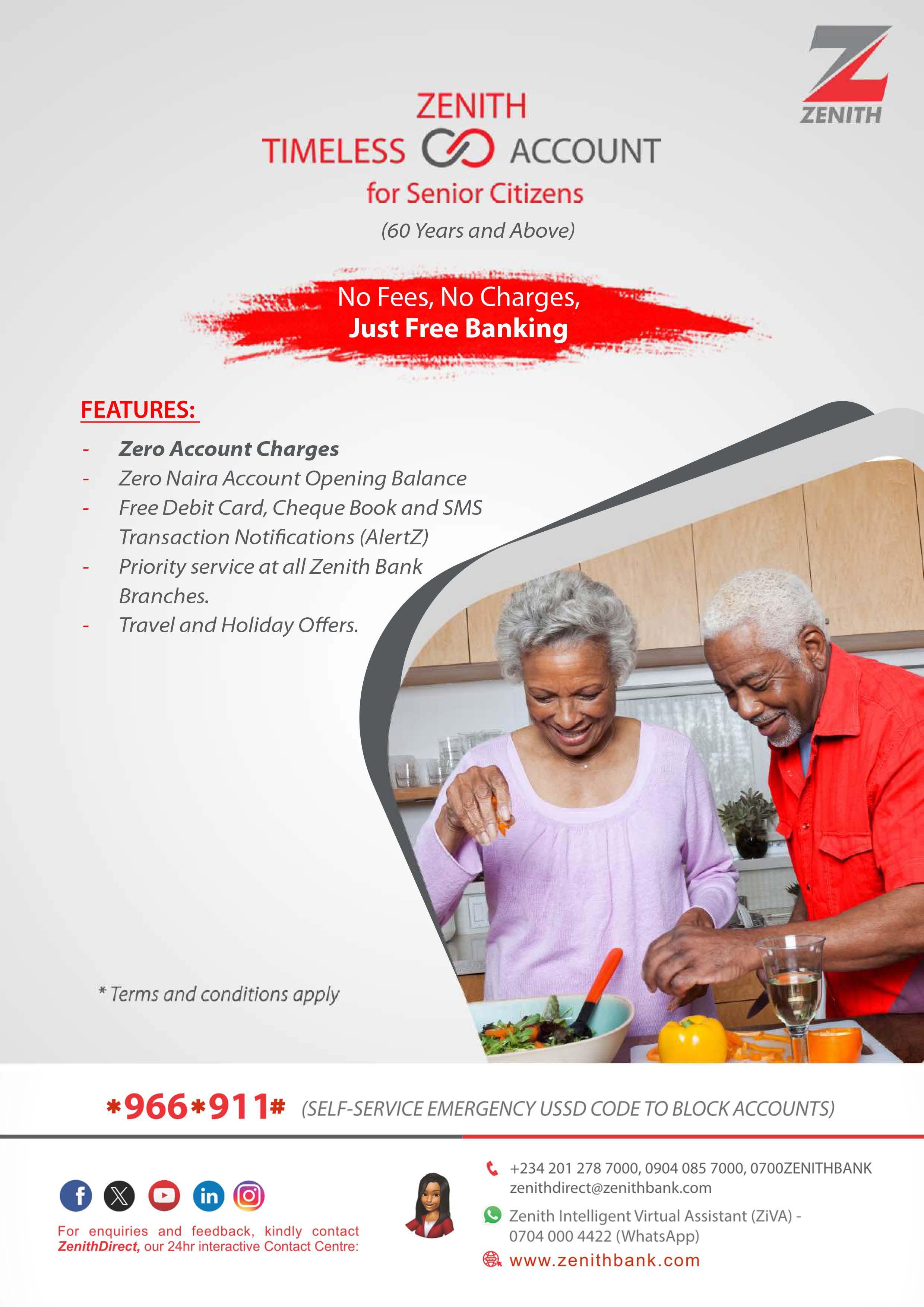

SALLY CHIWUZIE @unshakable.is.a.state.of.mind
They met on a girls’ trip last year — a day in Paris that neither of them has stopped thinking about. Fifteen women, some strangers, some friends, all at different crossroads of their lives. It was laughter, wine, and truth-telling. A story for another day, perhaps. But that day changed everything. From that Paris afternoon came a quiet friendship between two women who could not have been more different — or more alike. One was a Fortune 500 career woman — sleek, decisive, and still mastering the art of balancing heels with purpose. Her life looked immaculate from the outside: corner office, global team, annual bonuses, and the kind of poise that made younger women whisper, goals. Yet inside, she had begun to feel hollow. She had walked away from her husband two years earlier, a man who loved her but could never quite meet her at the altitude she was flying. It wasn’t animosity that broke them — it was distance, a quiet emotional erosion that neither of them could bridge. The other woman was an entrepreneur — with the occasional 9–5 to keep things steady. Her life was a series of starts and pauses, dreams pursued and bills paid. She hadn’t left her marriage, but she often thought about what it might mean if she ever did. Her husband was kind, dependable, present — a good man, she always said — but the spark between them had long been replaced by a gentle companionship that sometimes felt like duty. It wasn’t that she was unhappy. She was… contained. Over time, they found safety in each other — two women walking parallel lines, each holding the parts of the other’s story that felt familiar.
turned, as it often did, toward what now. The career woman spoke first.
“People always say divorce is freedom,” she said. “But it’s not. It’s more like… silence. You go from constant noise to nothing. I had to learn to fill my own space again.”
The other woman nodded slowly. “And those of us who stay — we have the opposite. Too much noise. I sometimes wonder what it’s like to wake up and not have anyone’s expectations waiting for you.”
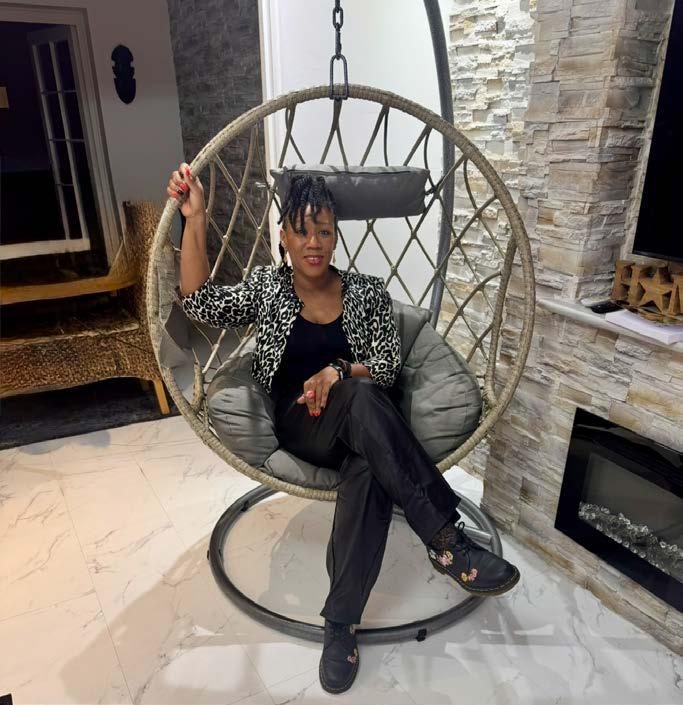
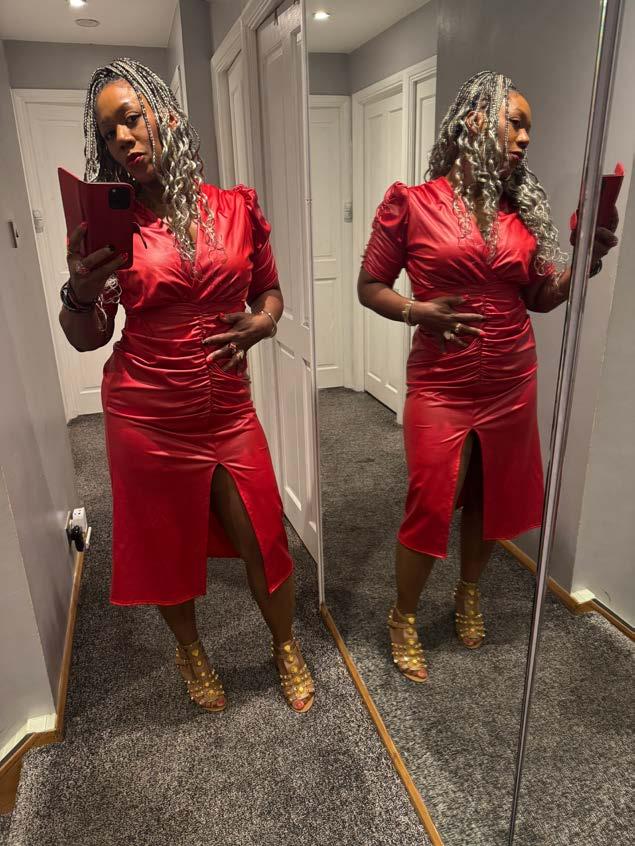
They smiled — two sides of the same mirror. Their friendship had become a gentle classroom of comparison. One had built her life around certainty and spreadsheets; the other, around instinct and intuition. One had learned to let go of control; the other was still learning to trust chaos. Both were, in their own ways, awake. Midlife had crept up on them not as crisis but as clarity. It wasn’t about youth fading — it was about truth sharpening. They were no longer seeking validation, romance, or the applause of peers. They wanted meaning, peace, and a sense of self that didn’t disappear when someone else left the room.
The career woman had begun painting again — something she hadn’t done since university.
“It’s the first thing I’ve done in years that doesn’t come with a performance review,” she laughed.
The entrepreneur smiled.
“You know, I envy that. I’ve been chasing purpose like it’s hiding from me.
Sometimes I think the thing I’m supposed to do is just… be still long enough to hear it.”
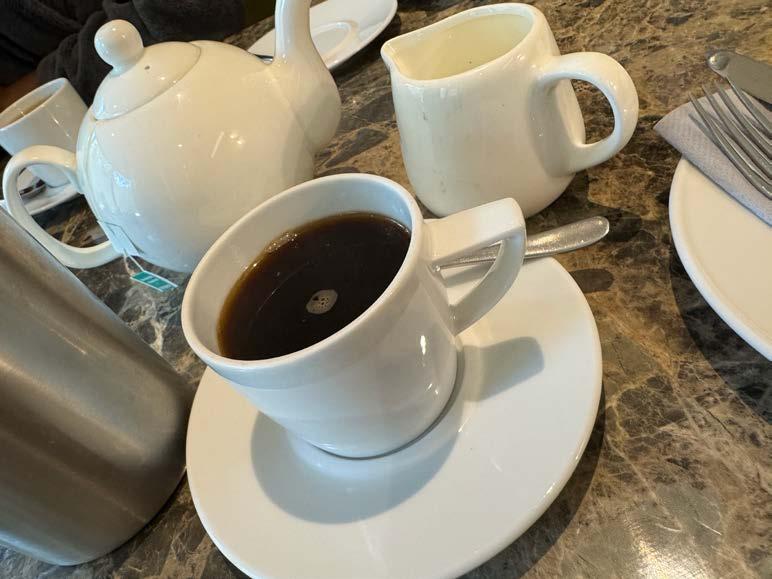
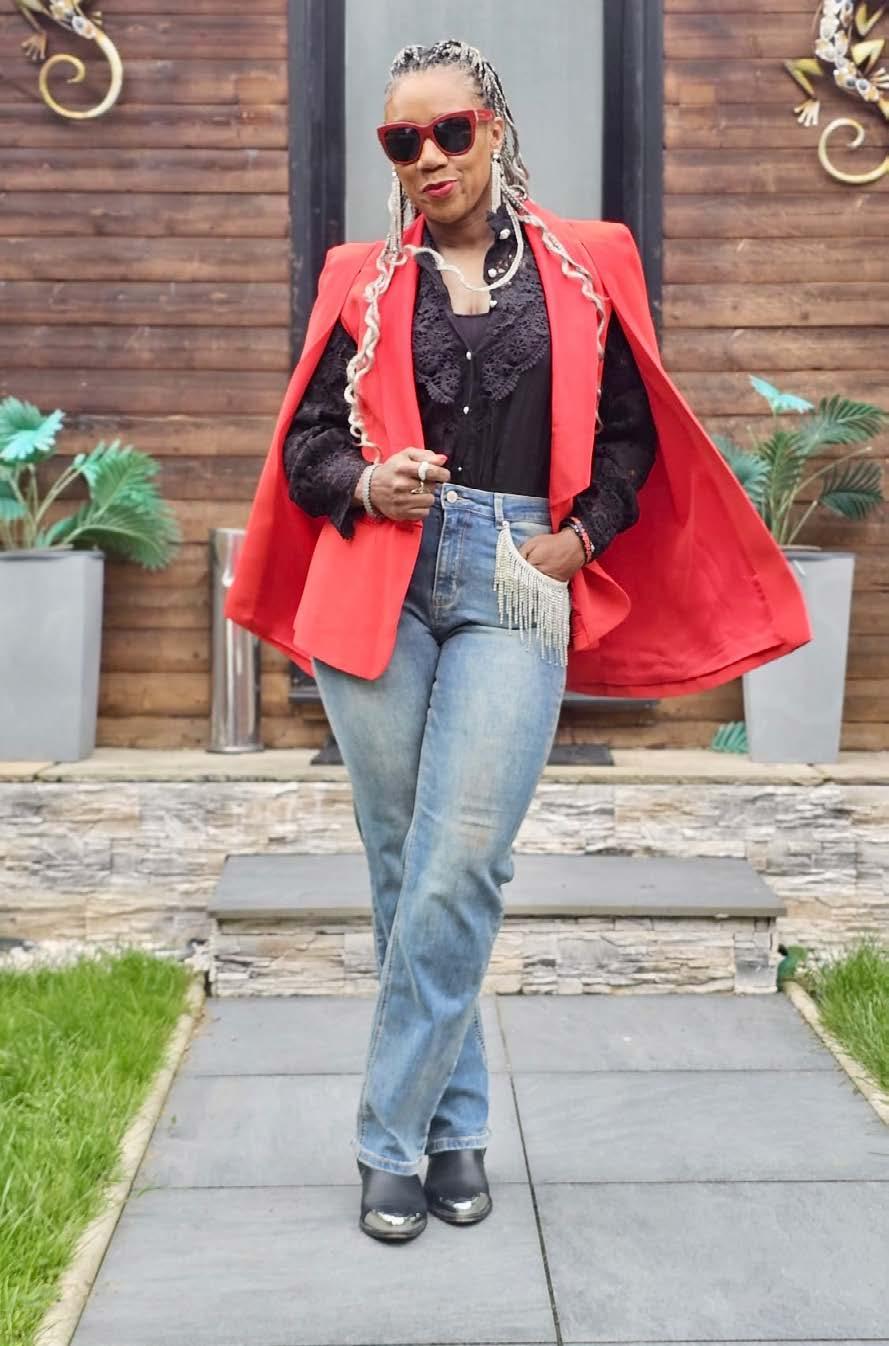

One afternoon over coffee, the conversation
They both paused, absorbing the truth in that sentence. Midlife was not about reinvention; it was about returning to the parts of themselves they had buried under responsibility, motherhood, marriage, and ambition. For one, it was a return to softness — allowing herself to be vulnerable after years of armour. For the other, it was a return to faith — trusting that the quiet inner voice guiding her toward something new wasn’t madness but calling.
That afternoon, they talked about balance and bravery, about how women are taught to keep it all together without ever being taught what to do when things start to fall apart. They laughed about hormones, grown children, and the irony of discovering themselves just when society expected them to start winding down. They agreed that this — this very moment of awakening — was not crisis, but grace. Because in rediscovering themselves, they had also found each other.
And perhaps this is the #Unshakable truth: midlife is not an ending, nor a reinvention. It is a remembering. A return to the self that once whispered, there is more to you than this, and now finally has the courage — and the quiet — to be heard.
‘See’ you next week.
Overthe past decade, Africa’s wellness and personal care industry has grown from a budding sector into a thriving ecosystem of creativity, innovation, and empowerment. From local skincare brands using indigenous ingredients to modern spas redefining self-care, the continent has witnessed a remarkable shift in how wellness is viewed and experienced. Today, wellness is no longer a luxury; it’s a lifestyle. Across Nigeria and Africa, brands are merging innovation with structure and purpose, creating jobs, empowering communities, and proving that the business of feeling good can also do good.
At the forefront of this evolution is Joycee Awosika, an awardwinning entrepreneur, energy economist, and global speaker who has redefined what it means to build with purpose. As the Founder and CEO of ORÍKÌ Group, an all-natural, farm-to-skin wellness and personal care brand, Awosika has spent the past ten years building a company that connects nature, beauty, and business in one ecosystem. From luxury spas and manufacturing to e-commerce and training academies, ORÍKÌ has set a new standard for excellence on the continent. Beyond ORÍKÌ, Awosika is also the Founder of SOAR, a business structure and operations consultancy that helps entrepreneurs and organisations achieve sustainability through systems and standards.
In this interview with THEWILL DOWNTOWN’s Dorcas Akintoye, Joycee Awosika discusses a decade of ORÍKÌ’s evolution, her vision for Africa’s wellness industry, and how she continues to build transformative enterprises rooted in structure, innovation, and impact.
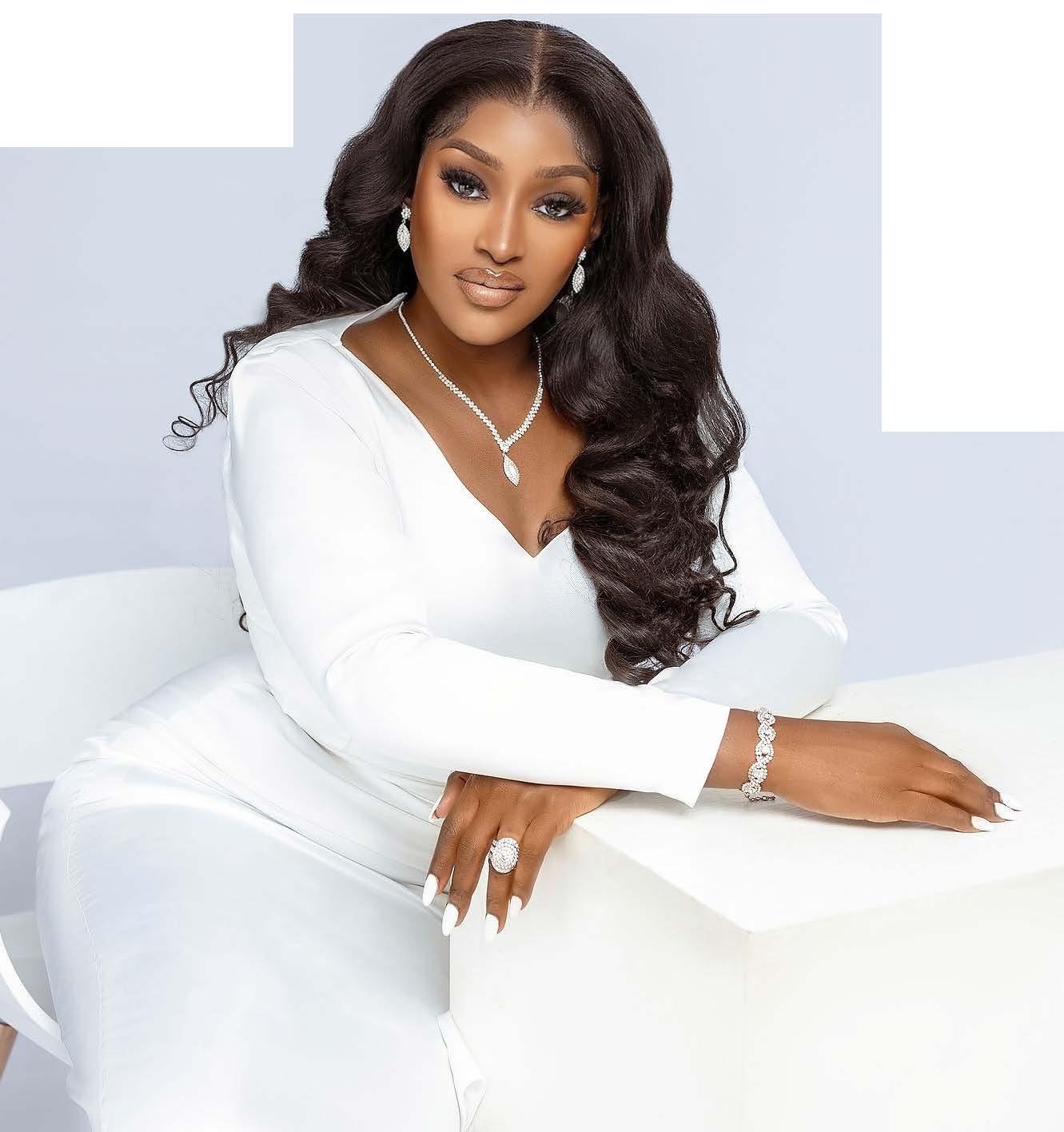
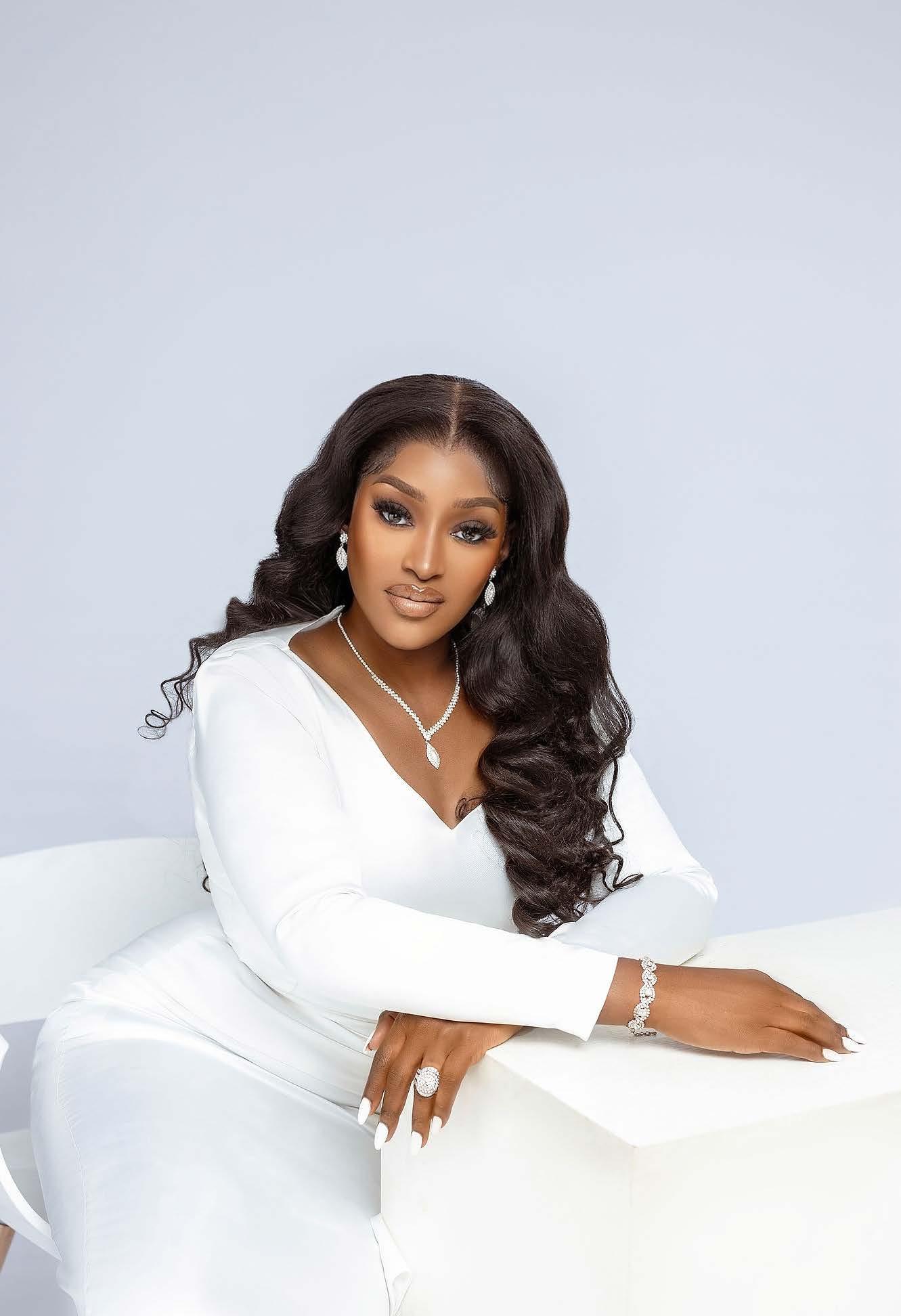
You transitioned from the energy sector and government advisory to entrepreneurship, two very different worlds. What was the defining moment that made you take that leap from corporate structure to building something from scratch?
It truly was a moment of awakening. I had worked in the energy sector in the U.S., in a Fortune 100 company — deeply structured, fast-paced, and globally competitive. Then I came to Nigeria for the first time and served on the public sector side, working during the monumental privatisation of the power industry, one of the most transformative initiatives in the country’s history. Those experiences gave me perspective — I had seen both sides of development: policy and execution, structure and vision. But I reached a point where I felt an inner call to give more, to contribute more tangibly to job creation, empowerment, and economic growth. I was young, but I deeply wanted to build something that could create employment, dignity, and pride from within Africa. That’s when I decided to follow another lifelong passion — my fascination with natural ingredients and their healing, transformative power. I began creating formulations inspired by the potent and abundant resources I found across Nigeria and the continent. What started as curiosity soon became conviction. ORÍKÌ was born from that place, a desire to merge passion with purpose, and to prove that Africa’s resources and people could birth something world-class.
slack on my true priorities — my family, my faith, and my purpose. I’ve learned that I can’t give what I don’t have, so I protect my time for prayer, reflection, and rejuvenation. Balance, for me, isn’t about doing everything perfectly at once. It’s about being fully present in the assignment of the moment — whether that’s leading a team, being a wife and mother, or simply being still.
ORÍKÌ has become a household name in African wellness. What was the initial vision behind ORÍKÌ, and how has that vision evolved over the past decade?
“There have been many seasons of stretching. People often see the highlights — the awards, the beautiful spaces, the expansion — but they don’t see the weight behind the wins, and I like to share both sides. The stretching is inevitable; we have waited for months on a project in another country, paying for delays every single day because vendors didn’t deliver, far from home, with limited control.”
Many people see the polished version of entrepreneurship, but few talk about the lonely, uncertain moments. What has been the toughest phase of your entrepreneurial journey, and how did you navigate through it?
There have been many seasons of stretching. People often see the highlights — the awards, the beautiful spaces, the expansion — but they don’t see the weight behind the wins, and I like to share both sides. The stretching is inevitable; we have waited for months on a project in another country, paying for delays every single day because vendors didn’t deliver, far from home, with limited control. We have made the wrong hires, costing us time, money, momentum, and numerous other resources. Those moments are tough — they tested my resolve and my leadership. But I’ve come to understand that growth requires pressure. It’s lonely at times, but it’s also refining. I haven’t met a single person who built something truly great without going through a season of stretching. And for me, that stretching has produced strength, wisdom, and grace that no textbook could ever teach.
As a woman leading multiple enterprises, how do you balance being ambitious with being intentional about selfcare, family, and purpose?
I’ve come to understand that life truly happens in seasons. Each season carries its own rhythm and priorities, and wisdom is knowing which one you’re in. There are times when God calls me to build fiercely to pour everything into expansion, leadership, and execution. And there are other seasons where He nudges me to slow down, nurture my home, invest in my spiritual growth, or simply rest. So I’m always very conscious of my season, because with each one, my focus shifts. But no matter what, I make sure I don’t
When I founded ORÍKÌ, my initial dream was simple but bold — I wanted to create a proudly African brand that could compete globally, using our continent’s rich botanicals and powerful natural ingredients. The spa itself wasn’t even part of the original plan; it was actually a marketing strategy; a way for people to experience the products firsthand through facials and treatments. But something beautiful happened; the spa took on a life of its own. People connected not only with the products but with the feeling ORÍKÌ represented: restoration, pride, and excellence. Over time, the vision expanded far beyond what I first imagined. ORÍKÌ has evolved into a complete ecosystem — encompassing manufacturing, training, wellness education, mobile on-demand services, empowerment initiatives, and so much more. Today, we are no longer just a brand. We are a platform, an ecosystem, and now, we’re stepping into an entirely new era — one where ORÍKÌ is becoming the infrastructure of wellness across Africa and beyond.
The wellness industry is often viewed as a luxury in Africa. How are you working to shift that narrative and make wellness more accessible and integral to everyday life?
COVID-19 was a major turning point not just for the world, but for the wellness industry, especially in Africa. During that season, people began to truly prioritise their wellbeing, realising that health and self-care are inseparable. We saw that shift early and decided to meet people where they are. That’s how we developed Unwind by ORÍKÌ, our on-demand wellness app, what many now call the “Uber of the industry.” It allows clients to book spa and grooming services right in their homes, hotels, or offices, within hours. This innovation made wellness accessible and convenient, and it
broke the barrier that wellness is reserved only for the elite. Beyond technology, we’ve been intentional about education and sensitisation — demystifying wellness and showing that it’s not indulgence, it’s healthcare. We’re proud that today, ORÍKÌ is partnered with major HMOs across Nigeria and beyond, meaning people with certain health plans can now have their spa and wellness treatments covered by their insurance. That’s a powerful validation of our mission, proving that wellness and well-being should be seen as part of the healthcare system itself. For us, accessibility isn’t just about affordability; it’s about redefining wellness as essential to life and longevity.
ORÍKÌ is deeply rooted in African authenticity, from sourcing natural ingredients to celebrating indigenous beauty rituals. How do you balance global appeal with staying true to African identity? For me, authenticity is our global appeal. The world is hungry for real stories, for originality. Our ingredients — kola nut, hibiscus, shea, atili oil — are Africa’s gifts to the world, and we package them with global standards and luxury experience. We never compromise on our roots. When someone visits an ORÍKÌ spa in Nairobi or Lagos, they feel the same intentional care, the same African warmth. Our strength lies in being confidently African while operating with world-class precision.
You’re on a mission to scale ORÍKÌ to 500 spa locations across Africa and beyond. What does expansion at that scale look like in practical terms, and how do you plan to maintain quality, consistency, and the brand’s signature experience?
Yes, we are, for us, this mission is about access. We believe wellness should be available and affordable to people everywhere, especially across a continent where it’s often overlooked or seen as a luxury. Our goal is to make wellness part of everyday life, not an occasional treat. We’re achieving this through strategic partnerships and collaborations, as well as partnerships with hotels and real estate developers that allow us to integrate wellness into daily living spaces. Technology remains the backbone of how we scale — our systems, training modules, and data-driven tools ensure consistency and efficiency across every region. Through our products, services, and locations, we’re building a future where people from Lagos to Kampala, Nairobi to the U.S., UK and elsewhere can experience the same standard of intentional care and excellence. For us, scaling this vision means democratising wellness, one community, one city, one person at a time.
“For me, authenticity is our global appeal. The world is hungry for real stories, for originality. Our ingredients — kola nut, hibiscus, shea, atili oil — are Africa’s gifts to the world, and we package them with global standards and luxury experience. We never compromise on our roots.”
SOAR focuses on helping SMEs build structure through systems and SOPs, something many entrepreneurs overlook. What inspired you to start SOAR, and what’s the most common mistake you see small business owners making today?
SOAR was born from my own growing pains. I realised many entrepreneurs have brilliant ideas but no structure to sustain them. I wanted to help them move from chaos to clarity — to build empires, not just hustles. The most common mistake I see is building on personality instead of process. A business that depends solely on the founder can’t scale. Structure doesn’t limit creativity, it
frees it, yet many entrepreneurs overlook it..
That’s the message we teach at SOAR: build systems so your vision can outlive you.
You’ve worked closely with entrepreneurs through SOAR. How do you help business owners shift from survival mode to scalability and sustainability? It starts with mindset. Many business owners operate in reaction mode — putting out fires instead of building foundations. At SOAR, we help them pause, audit their operations, and design systems that create consistency and growth. We also emphasise leadership development.
To scale, you must learn to trust, delegate, and empower others. When founders make that shift from doing everything to leading effectively, sustainability becomes natural.
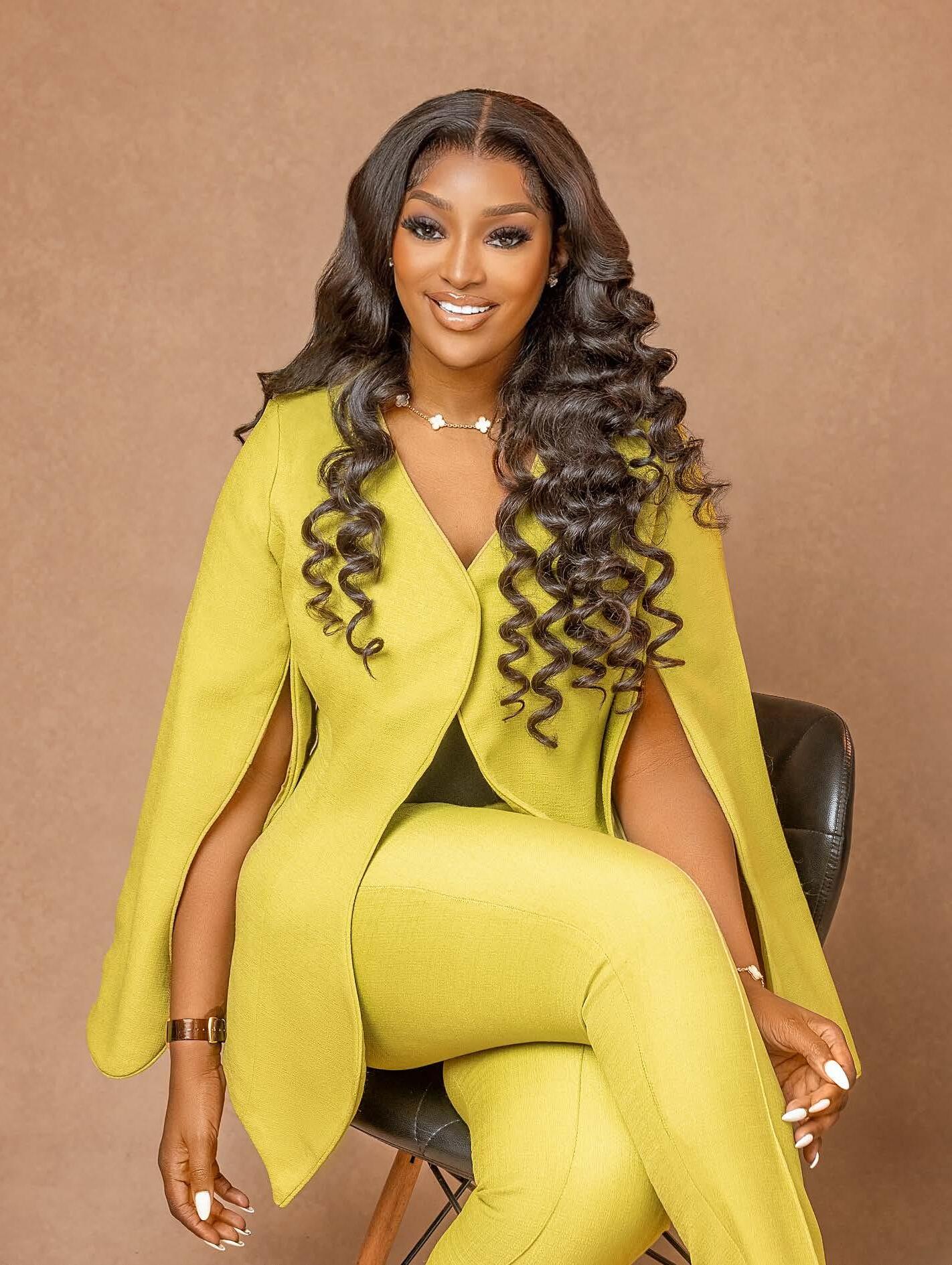
You’ve built brands that merge profit with purpose. How do you define “impact entrepreneurship,” and why is it important for the next generation of African entrepreneurs?
I believe Africa is the last frontier — the world’s next growth engine. We have the fastest-growing population, the youngest workforce, and some of the richest natural and agricultural resources on earth. Africa has the ability to feed the world, innovate for the world, and inspire the world. But to unlock that potential, we need entrepreneurs who build with both profit and purpose in mind. For me, impact entrepreneurship means creating solutions that solve real problems while empowering people and preserving dignity. It’s about designing businesses that transform lives, not just balance sheets. I believe the next generation of African entrepreneurs — including myself — must build enterprises that are sustainable, ethical, and people-centred. Companies that focus on people — from their customers to their team members — will stand the test of time. When you lead with purpose and prioritise the well-being of people, profitability naturally follows. That’s the model I believe will define the future of Africa’s business landscape: purpose-led, people-driven, and globally competitive.
You’ve been featured globally and recognised with several awards, yet you often emphasise structure and legacy over spotlight. What does legacy mean to you personally and professionally?
Legacy, to me, is about continuity. It’s not about fame or recognition — it’s about building something that lasts, something
that others can carry forward. I’m deeply passionate about developing leaders — people who can continue to push the vision even when I’m no longer in the room. That, to me, is the real reward: building something that others can run with and even make better. I also see legacy as building systems that don’t depend on me. True success is when an organisation thrives because of its structure, not just its founder. Awards and accolades are wonderful affirmations, but they’re not the goal. The goal is to create something sustainable — a movement, an ecosystem, and a culture that outlives me. Legacy isn’t about the spotlight; it’s about stewardship. It’s about ensuring that what you’ve built continues to impact lives long after you’re gone.
ORÍKÌ marks its 10th anniversary this October. As you celebrate this milestone, what’s next for Joycee Awosika and the ORÍKÌ brand?
This next decade is about scale and more impact — expanding our footprint across Africa and beyond, because I truly believe that every community deserves an ORÍKÌ. We’re on a mission to make wellness accessible, to build more centres of rejuvenation, and to bring the ORÍKÌ experience closer to people everywhere. For ORÍKÌ, we’re stepping into our next era from brand to ecosystem to infrastructure. We’re expanding manufacturing, opening hundreds of wellness centres, exporting African ingredients, providing more ondemand services and generating the data that will define the future of this industry. For me personally, I’m excited about multiplying
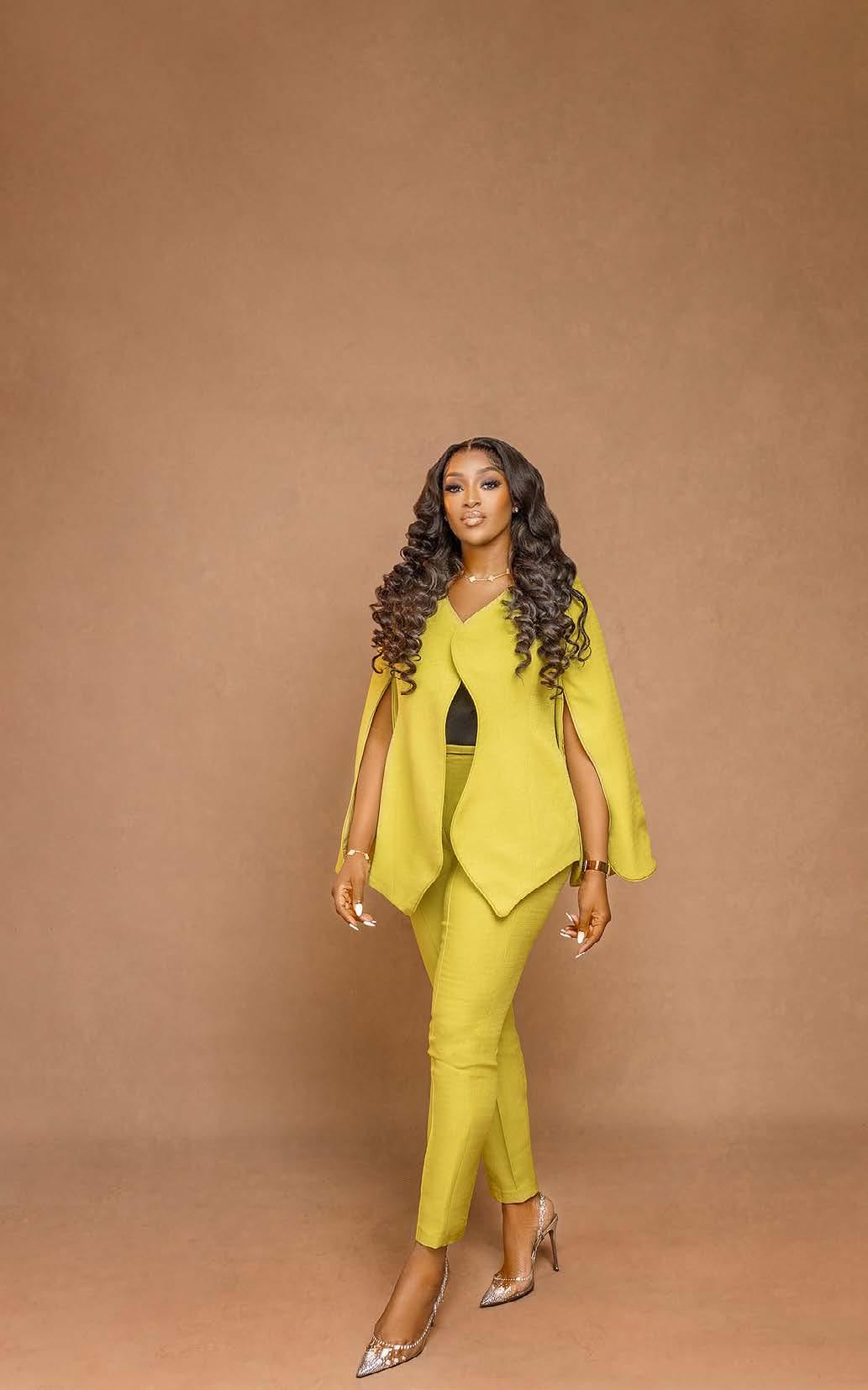
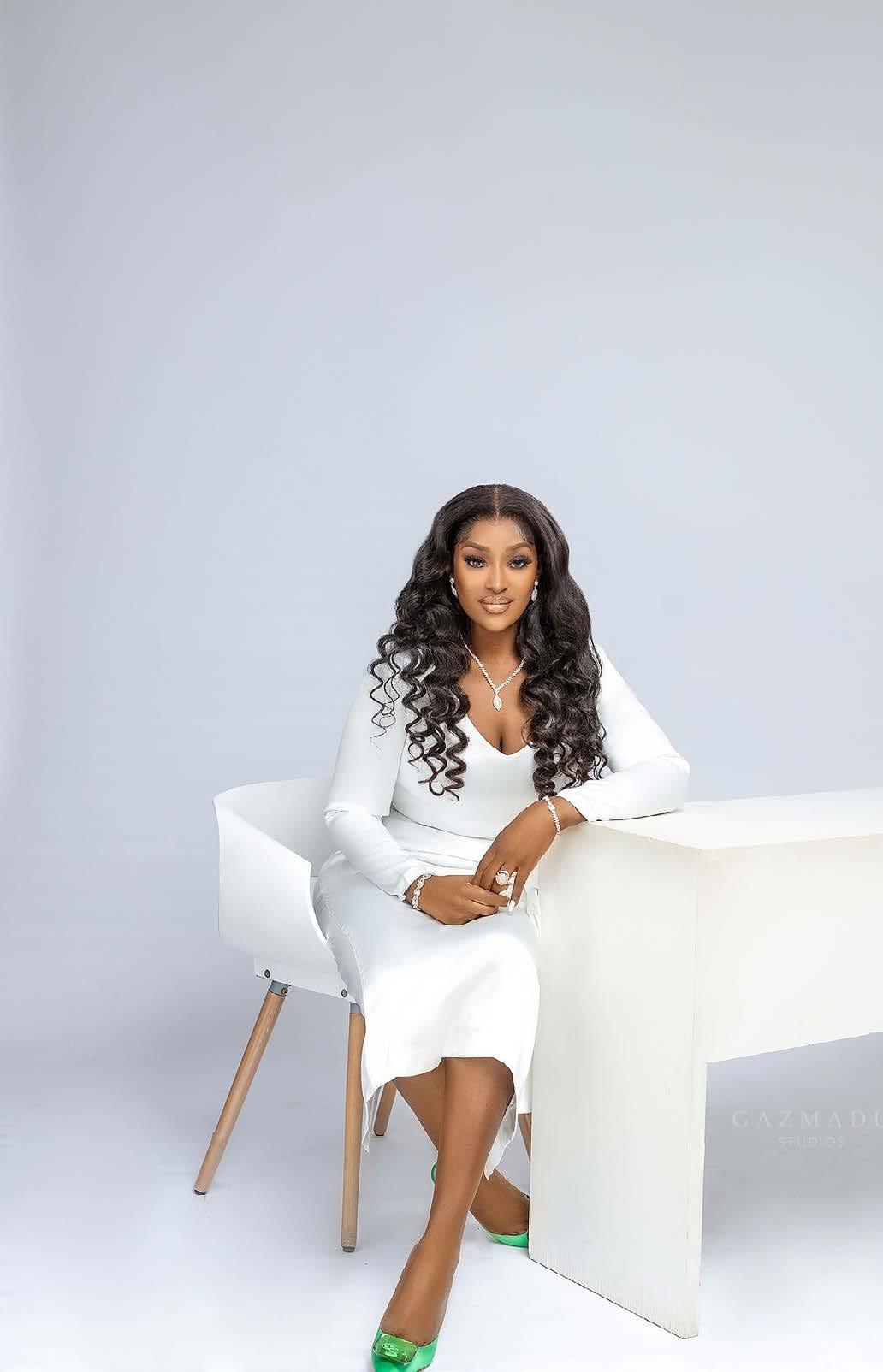
impact — mentoring more leaders, and deepening our global footprint. I believe the next decade will be about establishing a legacy at scale — one of wellness, empowerment, and excellence that radiates from Africa to the world. Ultimately, this next chapter is about changing the narrative about Africa, showing that Africa doesn’t just consume innovation, it creates it. For me, this is about accessible wellness and global impact, taking what was once a small dream in Lagos and turning it into a movement that heals, empowers, and inspires people around the world.
In Nigeria’s fast-evolving financial ecosystem, few voices resonate with the blend of intellect, intuition, and innovation quite like Akunnaya Ukeje. As the Chief Marketing Officer at Nathan’s Finance Limited, Ukeje represents a new generation of women redefining leadership within the finance and corporate marketing space. With a background in law and a master’s in corporate law, her career path has been anything but linear, one that gracefully bridges the worlds of compliance, strategy, and creativity. From her early years in asset management at Afribank Capital to leading marketing at Marathon Asset and Fund Management, and now steering the brand and communications strategy at Nathan’s Finance, Akunnaya’s professional journey reflects resilience, adaptability, and a deep understanding of how storytelling drives financial trust. Her track record speaks for itself, having led two startups to profitability within their first year, she continues to prove that effective marketing isn’t just about visibility, but about vision.
Beyond the boardroom, Ukeje embodies a thoughtful balance between purpose and passion. She brings a human touch to finance, one rooted in empathy, innovation, and authenticity. In this conversation with THEWILL DOWNTOWN’s Johnson Chukwueke, she delves into her remarkable career trajectory and the evolving role of marketing in shaping Nigeria’s financial future.
You’ve had a unique career path, moving from corporate law to asset management and now into marketing leadership. What inspired these transitions?
I didn’t start my career with a defined plan, nor did I set out to become a Marketing Executive or a finance expert. I have always been drawn to building meaningful relationships and solving problems that make a difference in people’s lives. I am a trained lawyer with a Master’s in Corporate Law, largely influenced by my Dad, who encouraged me to pursue law. Like many fresh graduates at the time. I was chasing opportunities in industries like telecoms, oil, and banking, which were booming then. I eventually chose to do my NYSC in the banking sector and started out at the Front Desk.
Interestingly, customers would always commend my customer service to senior management, and before long, I was moved to the FX Treasury desk to understudy a colleague. After NYSC, I was still uncertain about my career path, but I figured my law degree gave me a solid foundation. I took an entrance exam for Afribank, passed, and shortly after, began my career there. Though I started in credit, I was moved to marketing, and I remember our first task was reactivating dormant accounts. I strategically chose top oil sector accounts and proactively approached their offices. One particular visit stood out after confidently introducing myself at a major oil company; I impressed their CEO, which led to praise from my own management and ultimately a double promotion. That was the moment I realised I had a knack for finance and marketing. Afterwards, I went to the UK for my Master’s in Law, with my job still secured. Upon returning, I was moved to the investment
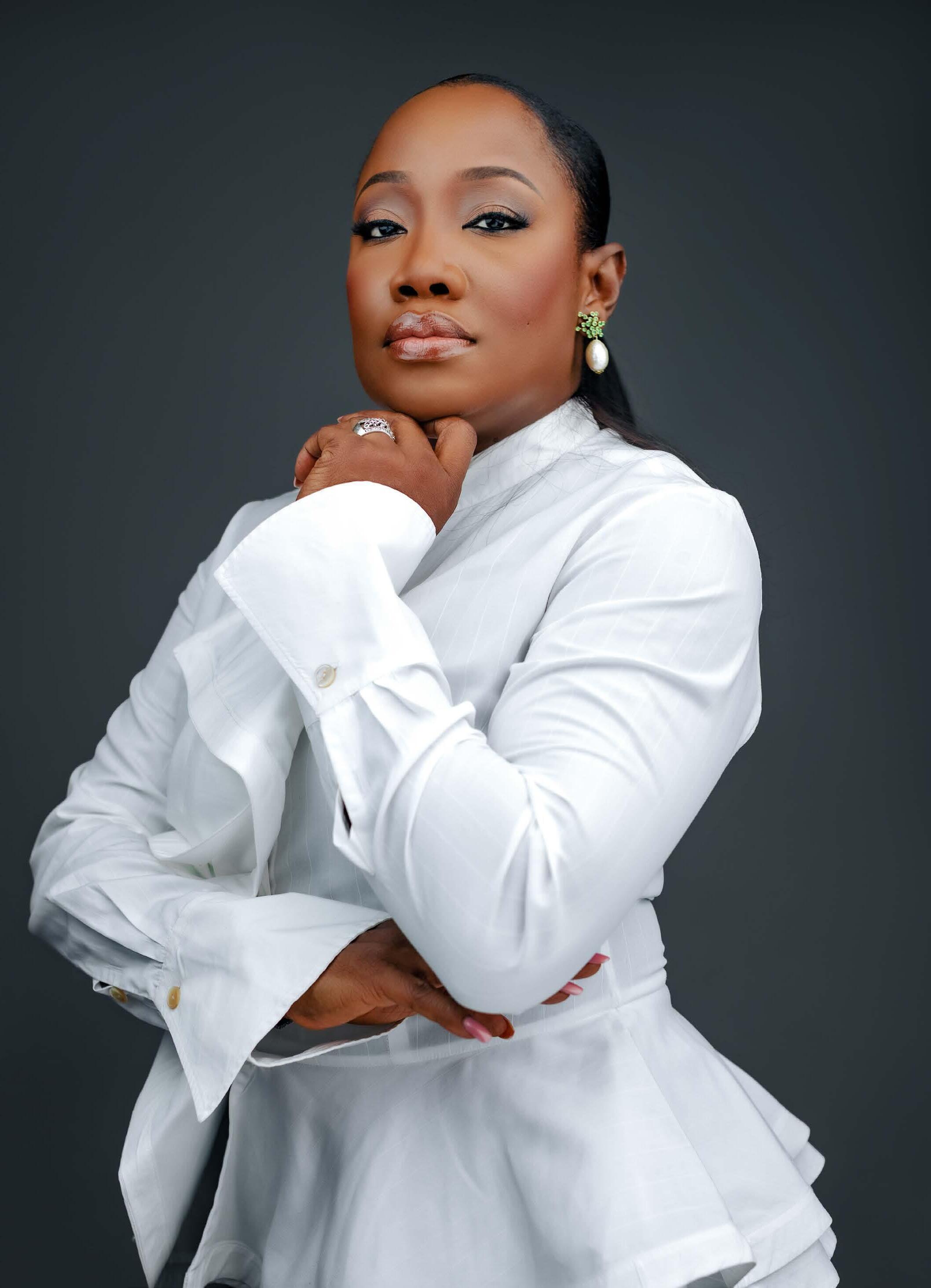
banking subsidiary of my bank and worked closely with the MD of that subsidiary, who believed in me from the start. However, life took a pause when I got married, became pregnant, and had to step away from work for 6 years to raise my children. Sadly, after the loss of my son, I was invited back into the industry by my former ED, who was launching an Asset Management firm. He asked me to come
on board as the Chief Marketing Officer, but first, I had to pass a regulatory exam to be a Sponsored Individual. Which I did. Starting with a blank slate, we ended the first year profitable, which was a huge milestone for a new firm. Four years later, I moved on to another start-up and achieved even stronger results, applying the same strategic principles. That’s essentially how my journey in finance and marketing unfolded.

As CMO at Nathan’s Finance, what strategies are you currently driving to differentiate the brand in Nigeria’s finance space?
My approach is centred on humanising finance. As a CMO, I see modern marketing as a balance between strategic capital management and authentic relationship building. At Nathan Finance, I focus on raising third-party liability by engaging institutional investors, high-net-worth individuals, and other individuals. This involves not just pitching but clearly communicating our value proposition and listening to customers’ needs. Trust is everything. I emphasise active listening, not just to reply but to truly understand the investor’s needs. That’s how we offer meaningful solutions. My deep knowledge in banking gives me the ability to sit with customers, hear them out, and provide tailored financial guidance. I often joke and say that if I were not in finance, I would be a shrink, as people tend to open up to me easily
My strategy isn’t just about selling products. It’s about building lasting relationships, understanding customers’ pain points, and offering real solutions. When customers trust you, every other thing becomes easier.
You’ve led marketing for two start-ups that closed their first year in profit. What lessons from those experiences do you now bring into your work at Nathan’s Finance?
Leading Marketing efforts for two startups that turned a profit in their first year taught me that selling in a start-up environment is completely different from selling with an established brand. In a start-up, you become the brand –you are selling yourself first, and trust becomes your most valuable currency. People are more likely to support a new
venture if they believe in the person selling it. Being able to give professional, credible advice also sets you apart. If you can convince people to invest in a new business, especially when their money is on the line, you can sell just about anything.
When you are a CMO starting from scratch, your first priority is identifying your target audience. While it’s common advice to start with family and friends, they are usually the last to come on board. You need to win over strangers first and then build meaningful connections. At Nathan Finance, my goal is to break down the barriers around finance- it’s not just about money, it’s about people, purpose, and building strong partnerships.
What would you say has been your most defining career challenge, and how did you overcome it?
One of the most defining challenges in my career has been navigating situations where my personal values didn’t fully align with those of the organisation. As someone who is self-driven and motivated by purpose, these misalignments can create tension. However, instead of avoiding the issue, I take it as an opportunity to advocate for alignment and demonstrate, through results and persistence, how a values-driven approach can benefit organisations.
Working in a startup environment requires a great deal of patience and flexibility, as you often experiment and pivot until you find out what works. Many times, leaders and team members may lack that patience, so part of the challenge has been continuously reassuring them, encouraging long-term thinking, and promoting the importance of organic growth.
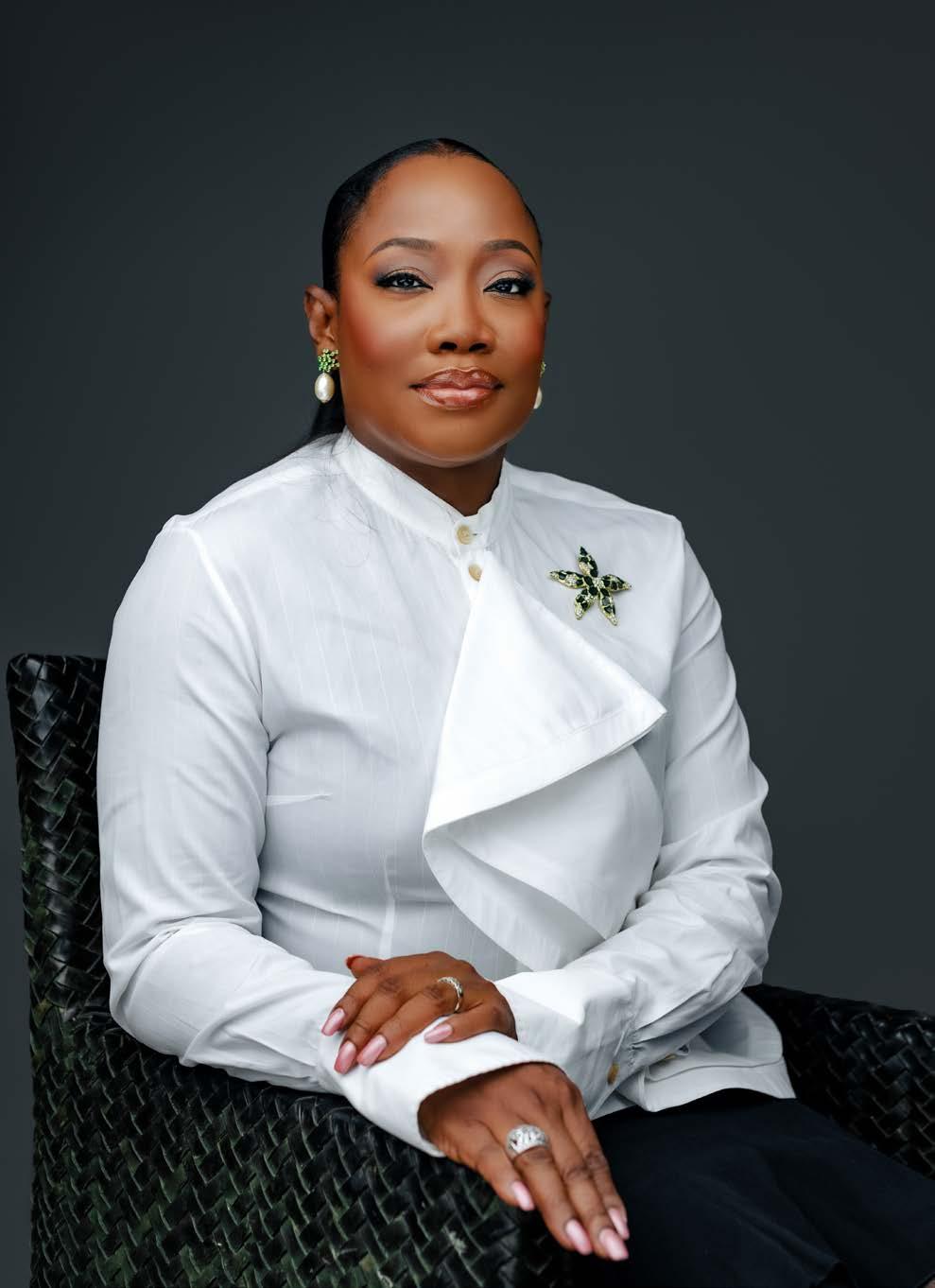
Outside of work, what hobbies or passions do you pursue to unwind and stay balanced?
Outside work, I enjoy a variety of activities that help me stay balanced and energised. I am passionate about fitness and regularly share my workout routines through weekly videos. I also love travelling, exploring new experiences, gardening, which I have been dedicated to for years, and hosting or entertaining at home. When I am interested in something, I dive in wholeheartedly and live by what I believe.
In addition to these, I am a certified image consultant, trained at the South African Image Academy. I also run a teaching platform called The Confident Professional, where I teach soft skills -something often overlooked by traditional education. I strongly believe these skills can be taught and make a significant difference.
I encourage young people to know a little about everything.
How do you balance the demands of such a high-pressure career with maintaining personal relationships and self-care?
I have built healthy coping mechanisms around the things I am passionate about.
For instance, gardening is incredibly calming for me; I can enjoy a cup of tea, chat with my plants, and unwind in the fresh, clean air they provide. Exercise has also been essential in helping me manage anxiety. Over the past decade, I have developed these habits to help handle stress. I also enjoy entertaining, so I often host small gatherings with people who uplift me. Surrounding myself with positive energy and consistently making time for activities I love helps me maintain a balance between my demanding career, personal relationships, and self-care.
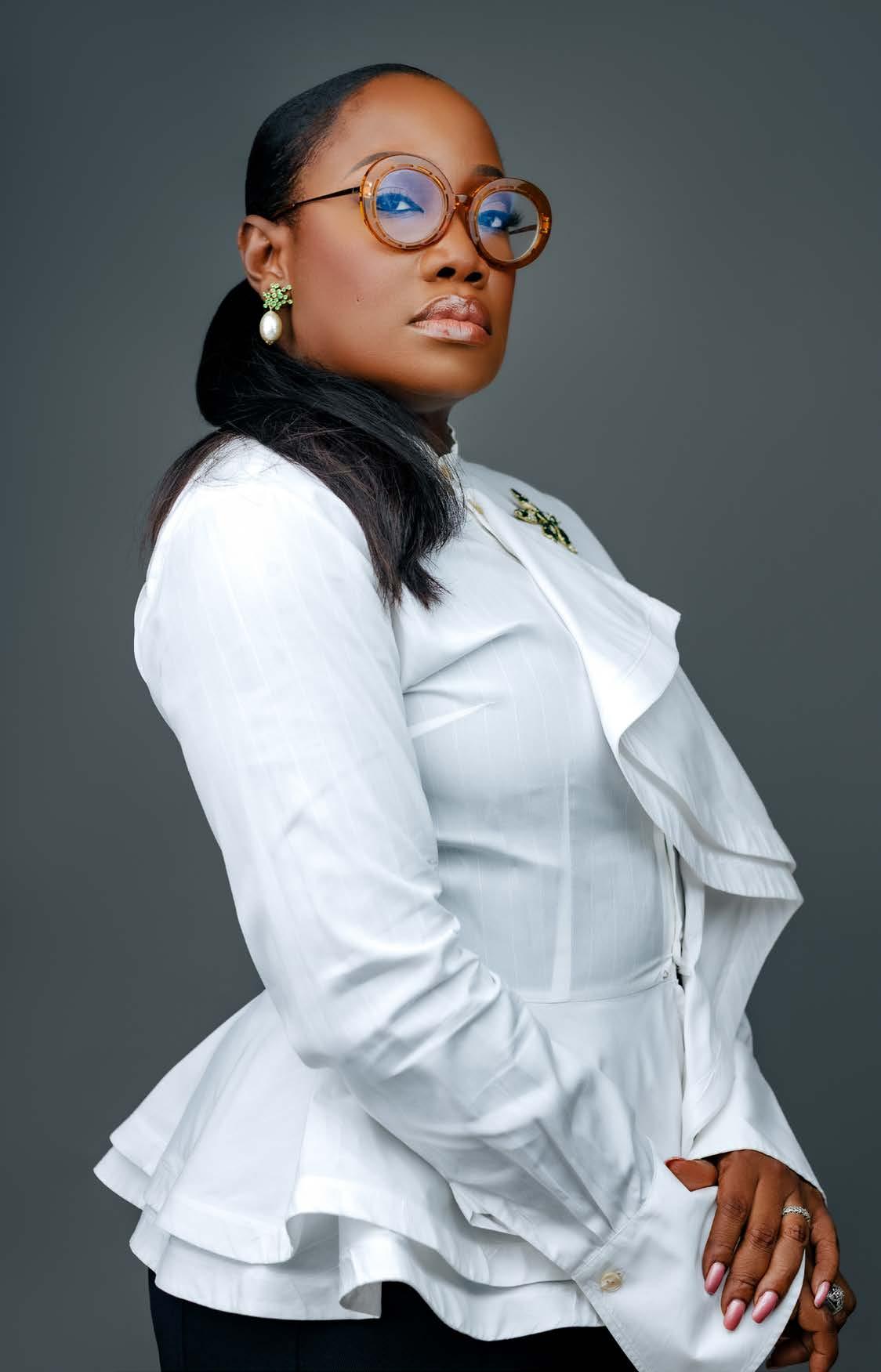

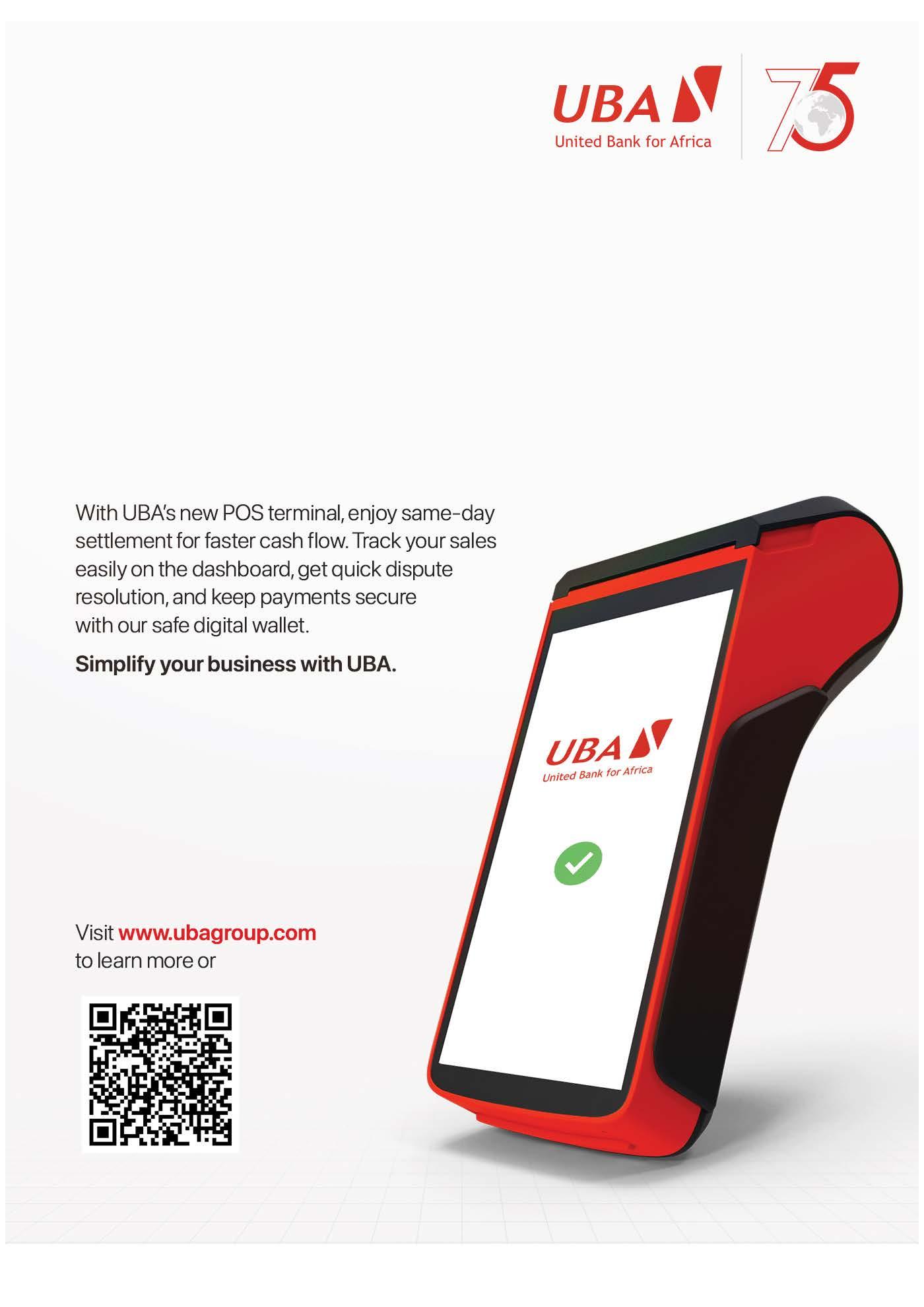
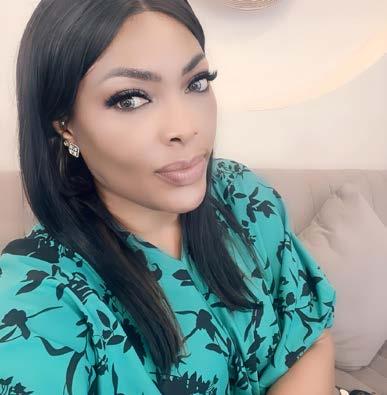
@aaddaahh
“If you call me after 9 p.m. and I don’t pick up, it’s not pride. It’s preservation.”
Therewas a time I couldn’t understand why my parents would hiss when the house phone rang at night.
“Who’s calling at this hour?” they’d grumble, as if the ring itself was an insult to peace.
I used to roll my eyes. It wasn’t midnight — it was just 9 p.m.
We were still awake, so what was the big deal? Why not just pick up?
Now, years later, I get it. I’ve become them. These days, my phone politely clocks out at 9 p.m. No drama, no guilt, just peace.
This is a public service announcement: if I’m your emergency contact and it’s not life or death, it can wait till morning.
Once upon a time, 2 a.m. was for gist, laughter, and “just one more idea.”
Now, 2 a.m. is for deep sleep or journaling,
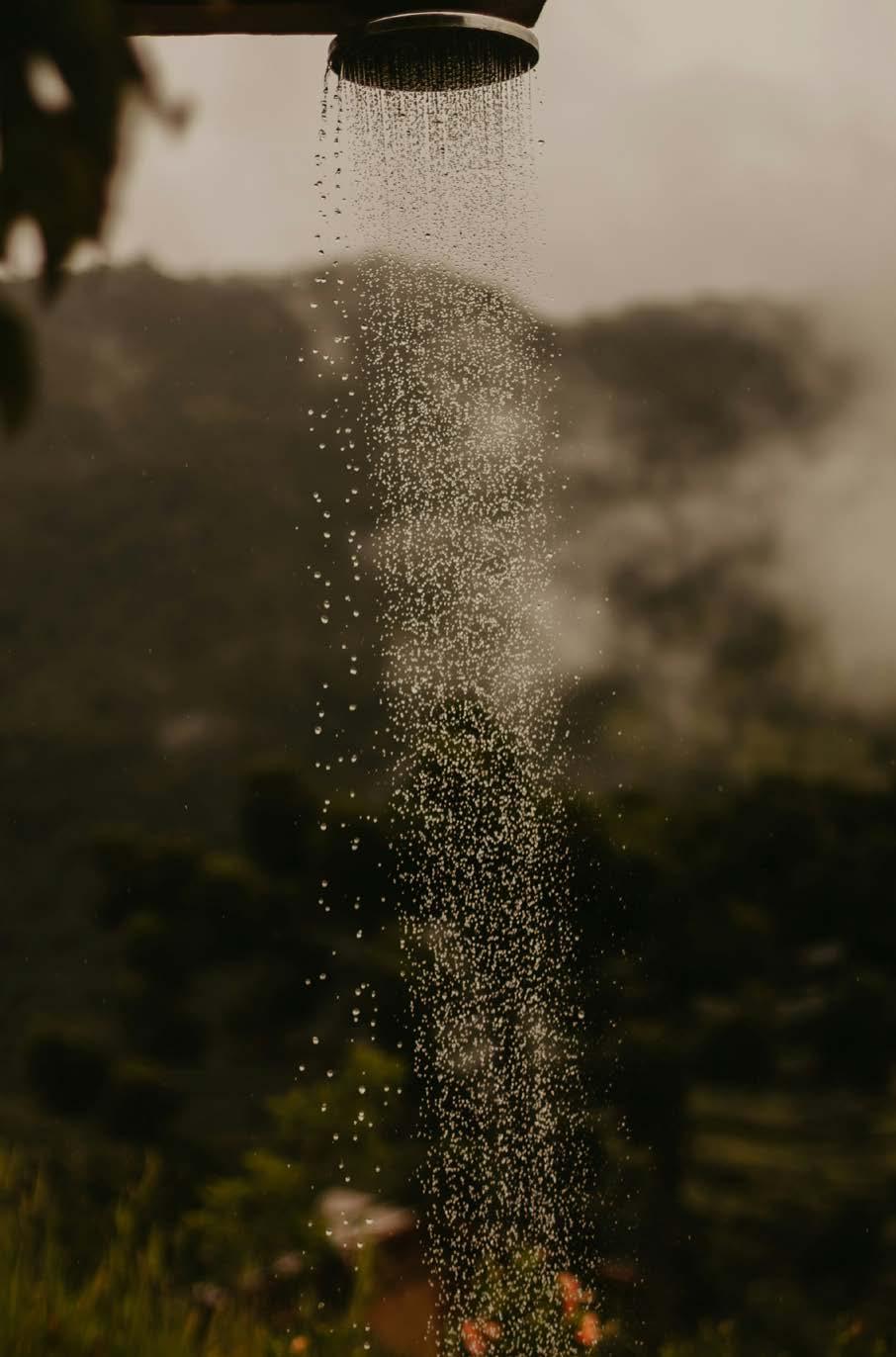
if my thoughts refuse to rest. Party nights, dancing till dawn? Don’t get me wrong, it was fun. But now, sleep feels like the better party.
I sleep at 9 p.m., wake up at midnight, sleep again, wake up at 4 a.m. to pray, meditate, and plan my day. Then I rest again till 7 a.m. before heading to the gym.
My peace has a rhythm now. My mind finally found its own clock.
If you text me at 10:17 p.m., you’ll get a reply at 5:43 a.m. Not out of spite, but because that’s when I’m up again, stretching, sipping water, whispering gratitude.
By then, you’ve processed your emotions, moved on, maybe even found a husband — and that’s okay.

It’s funny how adulthood humbles you quietly.
The same rules you once mocked become your survival code. I finally understand why my parents guarded their nights like sacred ground. Peace is precious. And noisy living will always try to steal it. I still don’t understand why people time how fast I reply to messages, as if they bought the phone for me. And even if they did, nko?
People expect instant responses, like it’s part of a service plan.
“Oh, Ada didn’t reply to my message since 3:45 p.m., it’s already 10:15 p.m.” Well… get over yourself. Life is also life-ing me.
I used to wear exhaustion like a badge. The later I stayed up, the more “productive” I felt.
Now, I wear boundaries like perfume — subtle, intentional, nonnegotiable.
We live in a world that glorifies being available 24/7. Every ping, every buzz, every “urgent” message pulling us away from ourselves.
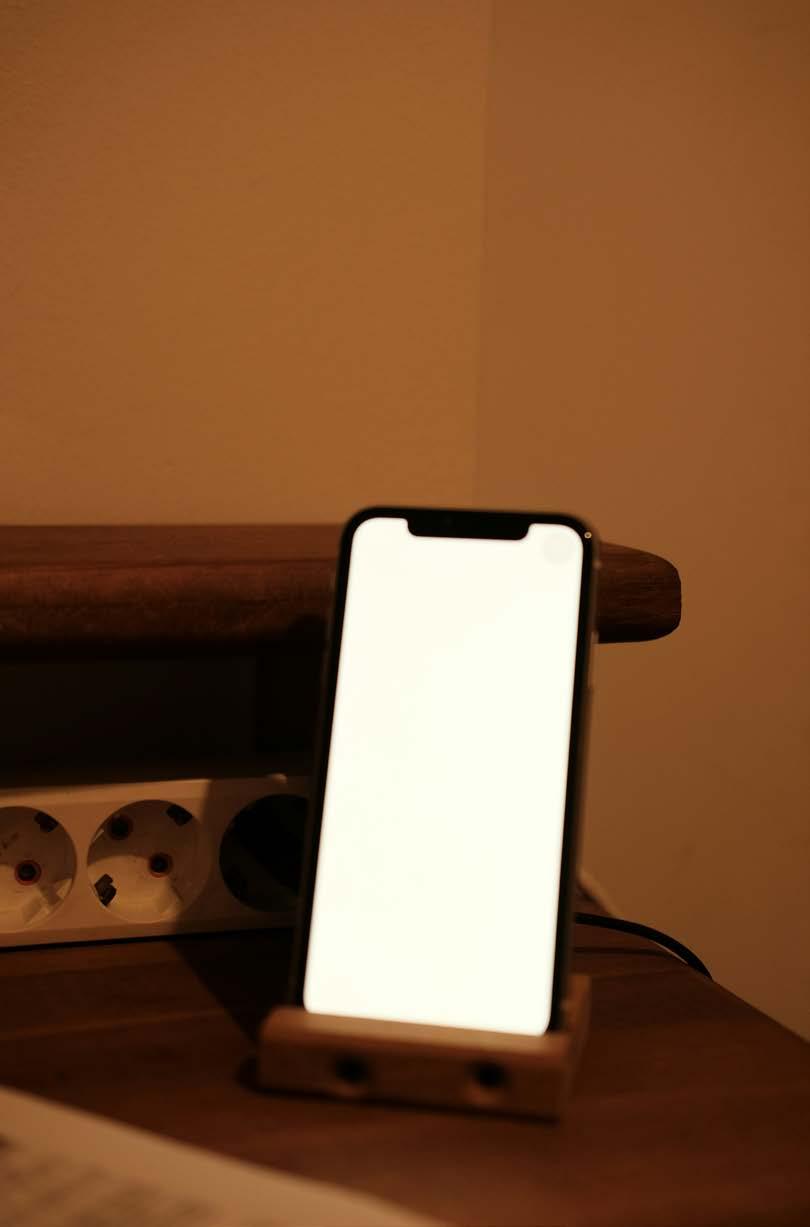
But not everything deserves instant access. Not every door should stay open all night.
Some doors need closing, even digital ones. Because sometimes, peace isn’t found in another brainstorm or podcast. It’s found in stillness — in learning to say, “I’ll reply in the morning.”
When I finally get into my room, the air
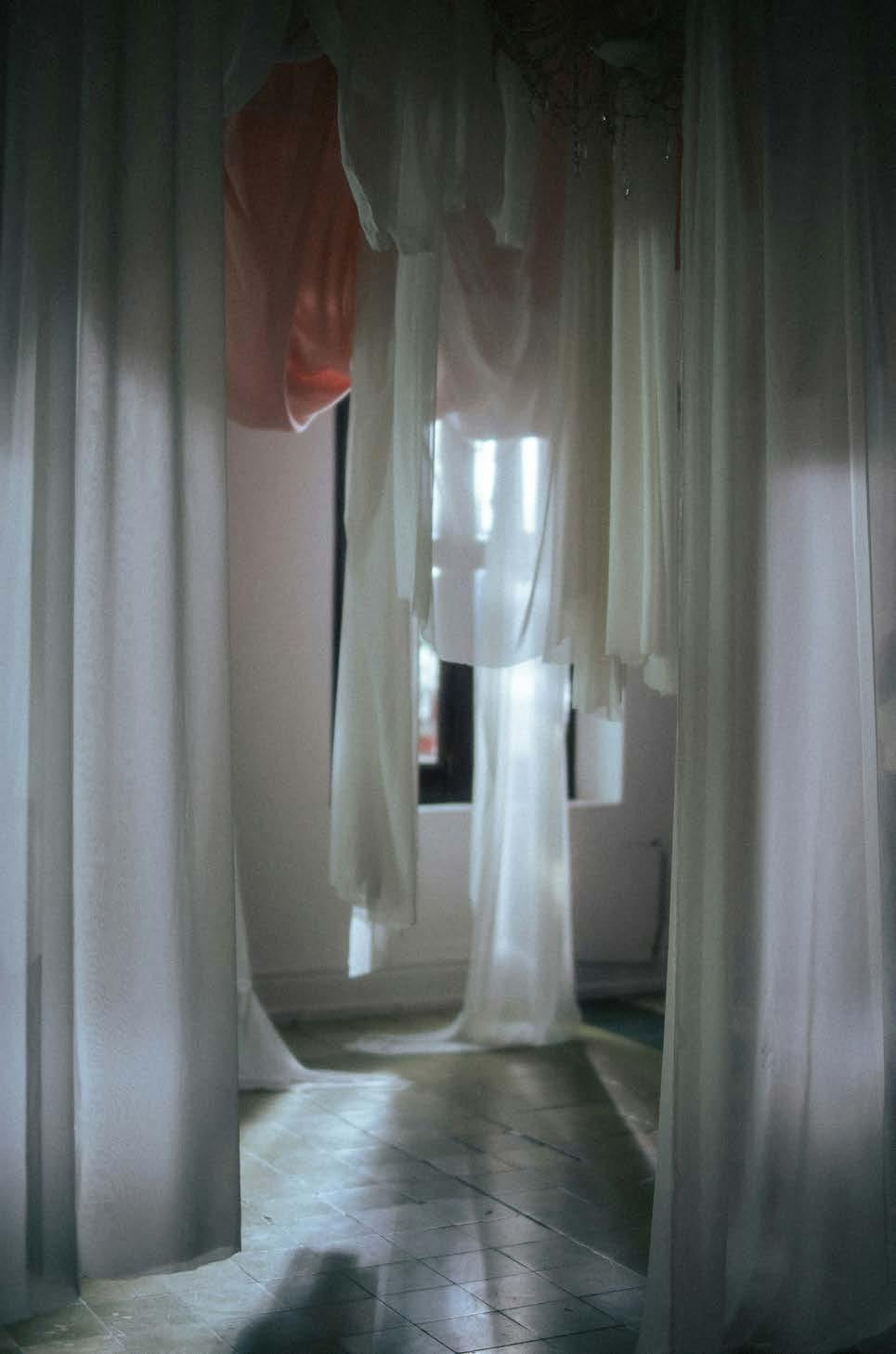
already knows what I need.
The soft hum of my Tinuke Luxury Reed Diffuser — warm, woody, calming — greets me before I even exhale.
We’ve all fallen in love with the new Tinuke Collection from WhiffWonders Company. For me, it’s more than fragrance; it’s a ritual. Sometimes I spritz my sheets with the Tinuke Room + Linen Fragrance. One mist, and the world softens.
The noise outside fades, and even my own thoughts take a seat.
That’s what peace smells like.
Not silence, but calm.
Not luxury in noise, but luxury in stillness. This is my soft life now — not being everywhere, but being well where I am.
So if you text me after 9 p.m., know this: I’m not ignoring you. I’m choosing me.
Choosing calm.
Choosing sleep that smells like Tinuke. Because peace, my dear, is the real Luxury Silk.

The first time I saw Fiyin, I was thirteen. He was the senior boy every girl secretly liked; smart, calm, always smelling of that faint soap scent that stayed even after he walked past. I didn’t understand what I felt back then. It wasn’t just admiration. It was something deeper, something that made my stomach flutter whenever he smiled at me during morning assembly.
I didn’t know the word for it then, but I felt a connection between us.
We never dated. He left school after senior secondary school, and life moved on. I told myself it was just a childish crush, the kind that fades with time. But every once in a while, his face would sneak into my thoughts.
Years went by. I graduated, got a job, moved to a new city, and built a life of my own. I dated other guys, even had my share of experiences that came with growing up, but nothing ever felt the same. Some nights, when I was alone, his face would appear in my mind out of nowhere. Not because I still loved him, but because he was the first person I ever felt something pure for. The first time my heart beat for someone without calculation.
Then two months ago, I was transferred to a new branch of my company in Lagos. On my first day, while trying to find the HR office, I heard a familiar voice behind me say, “Cassy?”
I froze.
I turned around slowly, and there he was. Older, broader, finer. The same gentle eyes, now framed by faint lines that only made him look better. For a moment, I couldn’t speak.
“Fiyin?” I managed to whisper.
He smiled. “Wow. It’s really you.”
That was how it started again, in a hallway filled with fluorescent lights and office chatter.
Working together was both easy and complicated. Easy because we clicked instantly. Complicated because every time our eyes met during meetings, my chest tightened. He was my team lead, which meant we spent a lot of time together, brainstorming, staying late to finish proposals, sharing lunch, and laughing about nothing.
The more time we spent together, the more the air between us changed. It wasn’t just nostalgia anymore; it was tension, quiet but strong.

One Friday night, after a long day, he offered to drop me off. The traffic was heavy, but neither of us complained. We talked about secondary school, about how innocent we were, about the things we didn’t understand back then.
He laughed softly. “You used to avoid me like I carried bad luck.”
I smiled. “That’s because I didn’t know what to do with how I felt.”
He turned to look at me, curiosity in his eyes. “And how did you feel?”
I hesitated. “I liked you. A lot. But it was more than that. I just didn’t have the words for it then.”
Silence filled the car. Then he whispered, “I liked you too, Cassy. You had this... quiet energy. I just didn’t think you saw me that way.”
When we reached my gate, I should have said goodbye and gone inside. But neither of us moved. He reached out and brushed a strand of
hair away from my face, his hand lingering longer than necessary. I felt my heart pounding so loudly I was sure he could hear it.
“Cassy…” he said, voice low.
I didn’t let him finish. I leaned in and kissed him. It wasn’t the kind of kiss that comes from curiosity; it was the kind that comes from waiting too long. Twelve years of buried feelings, curiosity, and longing all found their way into that one moment. Everything after that felt inevitable. The way he held me. The way I let him. The way time stopped, like the world had been waiting for this, too.
When I woke up the next morning, sunlight streamed through my curtains, painting soft lines across his skin. I didn’t know what label to give what happened: love, desire, or just closure.
But I knew one thing: after nine years, I finally understood what I felt for him back then.
And this time, I wasn’t too young to name it.
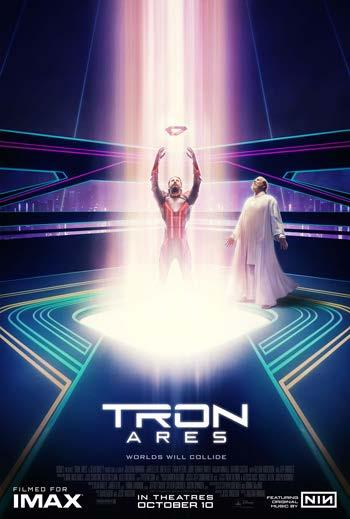
Ares is not a film. It’s an absolutely brilliant soundtrack by Nine Inch Nails, with some visual elements getting in the way. The music is loud, aggressive, adventurous, soaring, gritty and emotive, everything the actual movie is not.
The original Tron film is a 1980s Disney classic, loved at least for its early Computer Generated Image (CGI) animations of The Grid, a proto-cyberspace computer world into which Jeff Bridges’ Flynn is sucked, to join forces with the heroic programme Tron to fight the dastardly villain of the story.
2010’s sequel, Tron: Legacy, was a (to me, not necessarily financially) successful follow-up, with its dazzling design, Daft Punk music, and de-aged Jeff Bridges. What it particularly got right was its attempts to give proceedings some brains, with explorations of mortality, power, AI self-creation, the search for perfection, and even the idea of God as a ghost in the machine.
You’d think that, given our current times of anxiety of AI and corporate power and the erosion of democracy and human rights in the face of both, there was a huge opportunity for Tron to delve into the weightier themes as the best sci-fi has always done – sadly, that sort of nuance is sorely missed here.
Director Joachim Rønning (Pirates of the Caribbean: Dead Men Tell No Tales, Maleficent: Mistress of Evil) is no Denis Villeneuve. He’s more akin to Michael Bay, and indeed Tron: Ares has a lot in common with the Transformers films in its affectless posturing, empty action sequences, annoyingly cryptic characters and a total lack of cool.
The only wise thing he does here is turn the music way up. Somewhere under it, is the story.
And it’s about Ares, a soldier programme played by Jared Leto, who is brought from The Grid into the real world by dastardly young CEO Julian Dillinger (grandson of the original bad guy, played by Evan Peters
BY BOLUWATIFE ADESINA
from American Horror Story), to the slight annoyance of his mother (Gillian Anderson). The catch is, Ares can only exist for 29 minutes on earth.
Meanwhile, Dillinger’s rival CEO at ENCOM, Eve Kim (Greta Lee) has uncovered the Permanence Code, which will allow things generated from computers to exist properly in the real world as living things; she, being the goodie, wants to grow trees and feed the world, not destroy it.
Anyway, this cues lots of chasing around after the code - which despite all the technology around, is kept on a data stick inside Eve’s pocket for one lightcycle chase – and various jumpings in and out of The Grid. Early on, without much preamble, Ares decides he wants to be human. Ares and Eve have to combine forces and mildly flirt in order to ward off the evil programmes that encroach a tad on reality.
Mostly, this is about a brooding Jared Leto. It is particularly strange to do this given he’s hardly everyone’s favourite pin-up, but there he is with his hair and his leather, forever looking into the distance and saying things like, “Who knows where I’ll go next…”
What was a great chance to at least have some fishout-of-water fun with the character - as an AI who has access to all the information in the world who, as with ChatGPT, would be just a little off with its human aping - but the only sign of this is that Ares likes 80s things. Really, the film can’t resist just trying to make Ares cool. Shouldn’t he get social cues wrong as a computer program comes to life? Not this guy, he smoulders over motorcycles and fist bumps trembling nerds. Most disappointingly, he barely even fights. Leto, also a producer on the film, seems intent on delivering a super-soldier who just wants to hang out.
Yes, they’ve slung in bits of Blade Runner, some of the super-soldier musing on mortality in the rain (my favourite Ares line in an atrocious script is when he goes, “A wise man once told me it should be called the ‘Impermanence Code’. That’s the thing about being human: it’s not permanent.” Thanks for explaining that. Truly.), and some bits of Terminator and Dune, but it’s all very unconvincing: Even the money shot moment, where the Space Invader-style ships from the first film move in on a city, ends with ‘destruction’ so light that barely a window gets broken, as the mighty war machines mince between buildings.
It’s all a bit of a waste. Greta Lee is likeable as ever, but generally she’s asked to do nonsensical running sequences, which is a bit odd; you don’t ask Usain Bolt to act in comedy-dramas, do you? Jodie Turner-Smith is a strong presence but underused as another supersoldier, Athena. Peters chews some scenery as he waits for decent dialogue. Anderson can’t seem to figure out what her character is doing there, and neither can we.
In many ways Tron: Ares represents the best and worst of blockbuster cinema. The huge marketing spend has successfully whipped up excitement, all its imagery is strong, and it genuinely feels like an event - there’s a buzz as you take your seat. But then the deflation comes and you realise that all the ad spend in the world can’t make a film good. It feels both expensive and cheap; why spend a fortune on selling it, if you won’t also splash out on a creative visionary to drive it to excellence?
But look, this is all working under the presumption that this is a film, which it isn’t. It’s a Nine Inch Nails soundtrack. If you do see it, go to a cinema where they turn the music up to 11. And then close your eyes.
Rating:4/10
Really wanted to like this one. Banger of a Soundtrack though!

Scan this with your camera or click to access the playlist (Youtube Music)
Relentlessly grim yet ultimately redemptive, befitting a crime drama whose hero used to be a priest, HBO’s harrowingly suspenseful Task tells the parallel stories of two men with deep sorrows.
FBI agent and former chaplain Tom Brandis (a rumpled and melancholy Mark Ruffalo), returning to fieldwork in Philadelphia after a devastating family tragedy, is put in charge of a hastily assembled task force to find the culprit who’s been burglarising gangland drug houses. His target: Robbie Prendergrast (Ozark‘s soulful Tom Pelphrey), a working-class family man raising his two kids with his long-suffering 21-year-old niece (CODA‘s Emilia Jones) while pursuing a mission of retribution against a violent motorcycle gang.
They’re both in mourning: Tom for his late wife, also for his mentally unstable adopted son, for whom he can’t bring himself to testify on the boy’s behalf in an upcoming sentencing hearing. (Forgiveness is recurring theme in this often bleak series.)
Robbie grieves for his murdered brother, also for a broken family after his wife abandoned their kids and him a year ago.
When, during their one fateful meeting, Robbie calls Tom “the world’s most depressing human,” he’s not lying.
And yet, with Mare
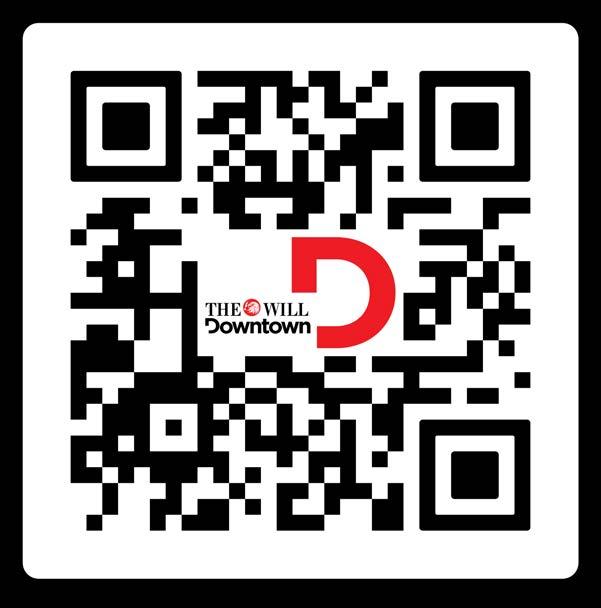
Scan this with your camera or click to access the playlist (Spotify)
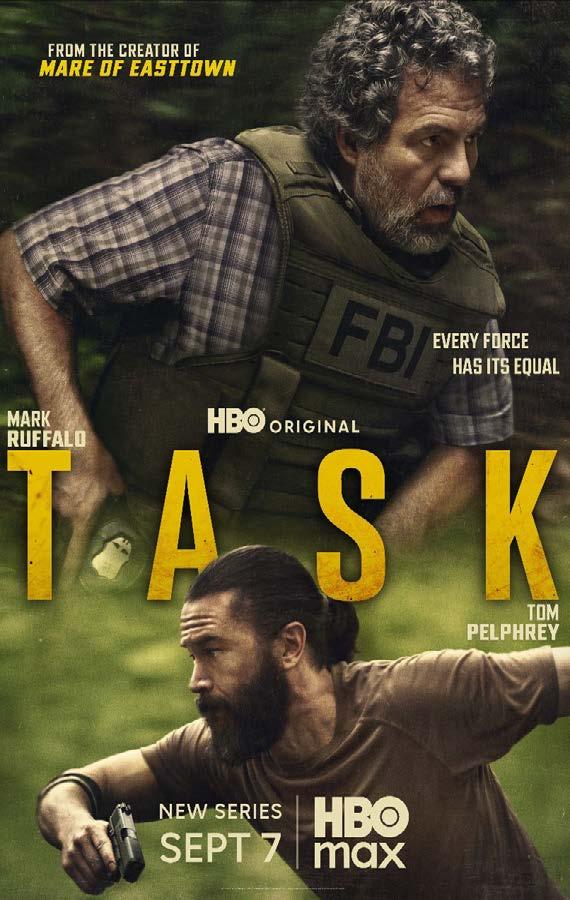
of Easttown creator Brad Ingelsby returning to a rural Pennsylvania setting (replete with thick accents) to tell his violent and bloody fable of flawed men on a collision course, there are moments of aching tenderness and grace amid the brutal mayhem. (Not just because of the motorcycle-gang subplot, will viewers be reminded of Sons of Anarchy and its fatalistic humanism.)
There’s a strong sense of place and purpose, and memorable characterisations, as Tom assembles his motley team, including Aleah (The
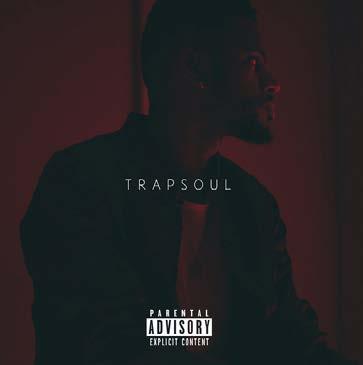
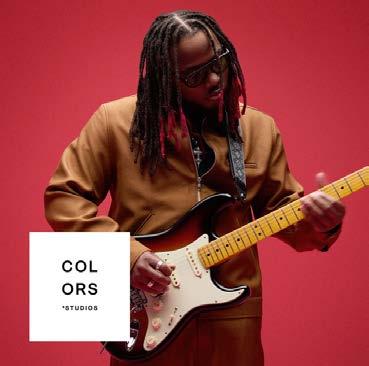
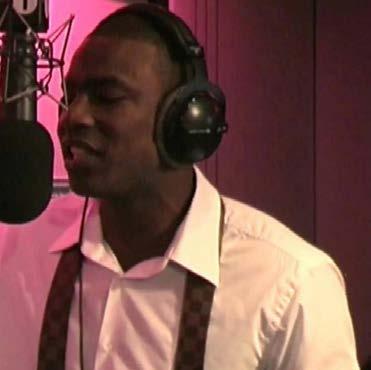
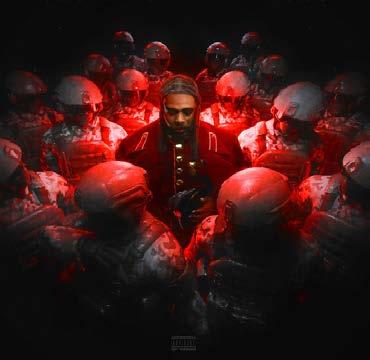
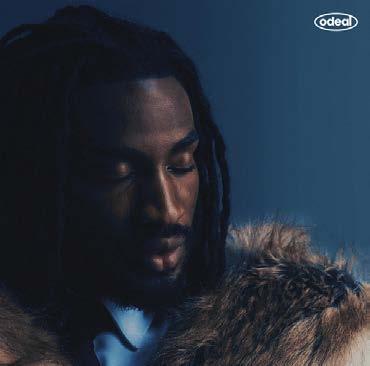

Woman King’s Thuso Mbedu), a taciturn sharpshooter, cocky organised-crime vet Grosso (the charismatic Fabien Frankel), and a green state trooper, Lizzie (Alison Oliver), who has a bad habit of freezing at inopportune times. Their FBI boss, who aptly describes herself as an “unrefined old bitch,” is played by the invaluable Martha Plimpton, bringing acerbic humour to a show that could really use it.
Using his garbage-truck route as cover for his burglaries, Robbie and his buddy Cliff (Raúl Castillo) put their and others’ lives in jeopardy when, in a twist, one of their heists goes chaotically sideways, leaving Robbie harbouring a lethal amount of fentanyl as well as an unexpected witness who complicates everyone’s life.
“I’m a million miles past good ideas,” Robbie confesses as the situation becomes increasingly dire and the body count rises, exposing corruption on both sides of the law. Though it can sometimes feel like a task to keep returning to this downbeat world, Task rewards the viewer with emotional payoffs that are as likely to lift as break the heart. If it’s still too much for you, I understand. You’re forgiven.
